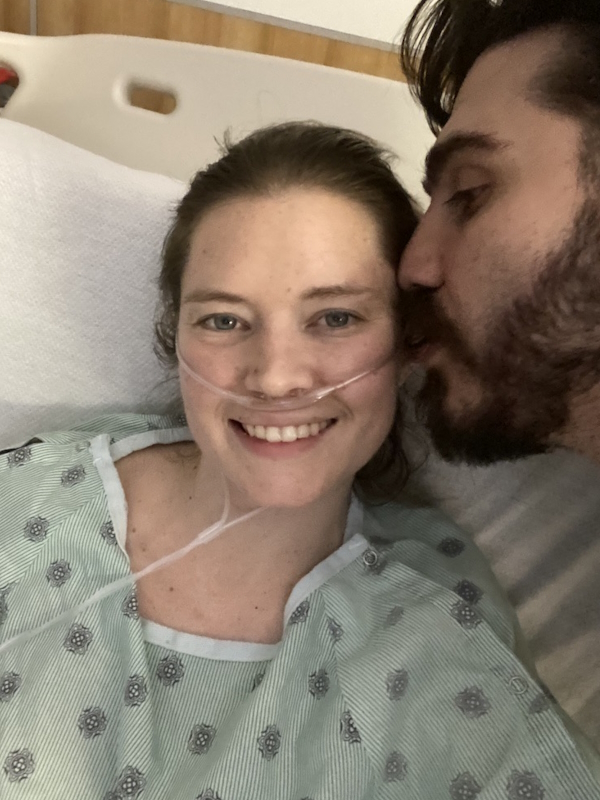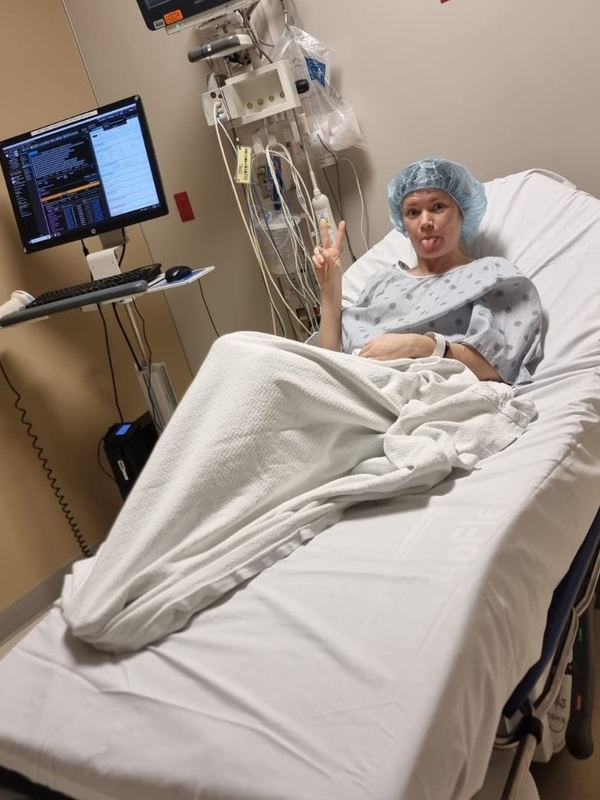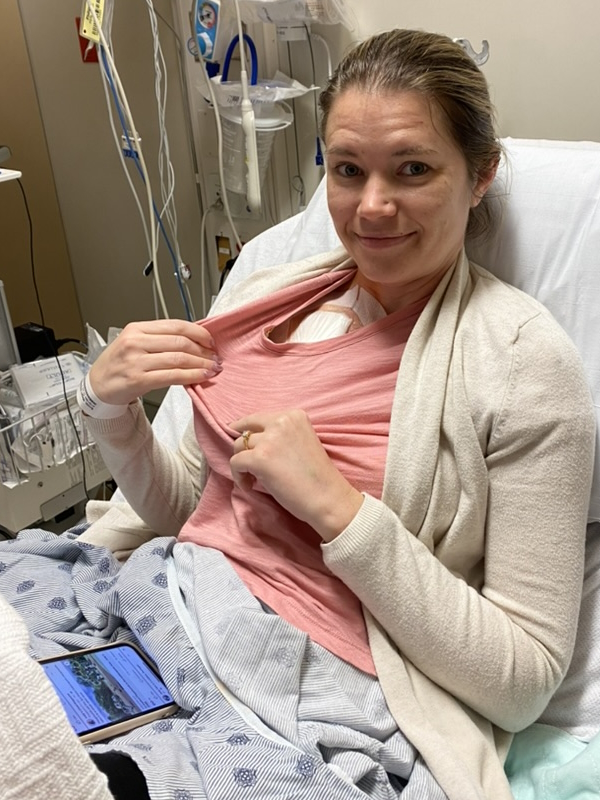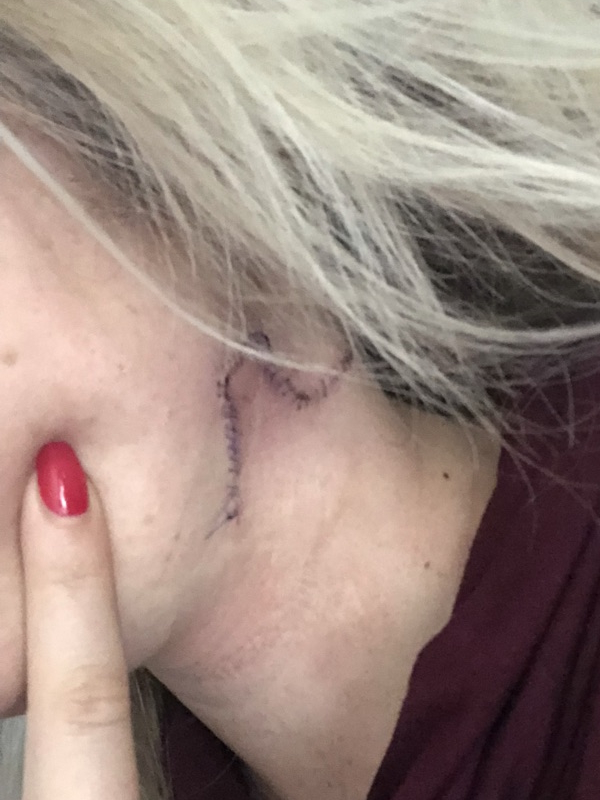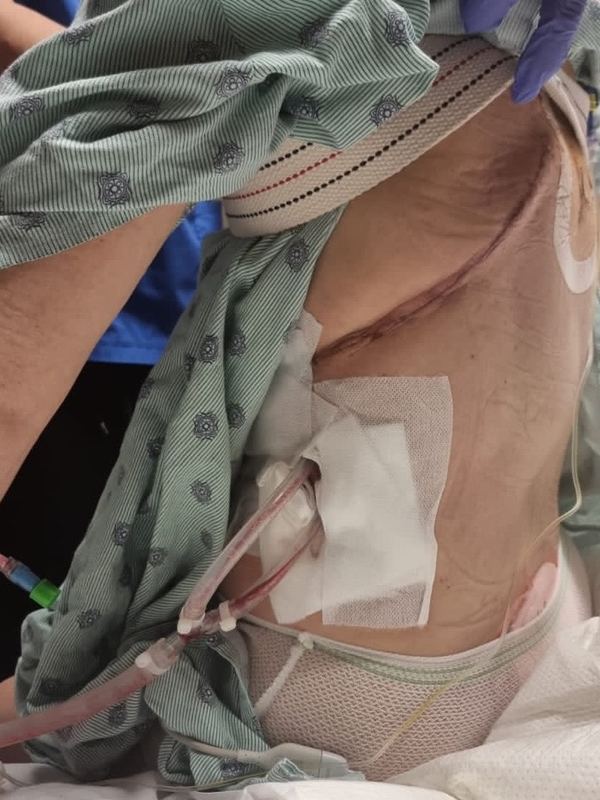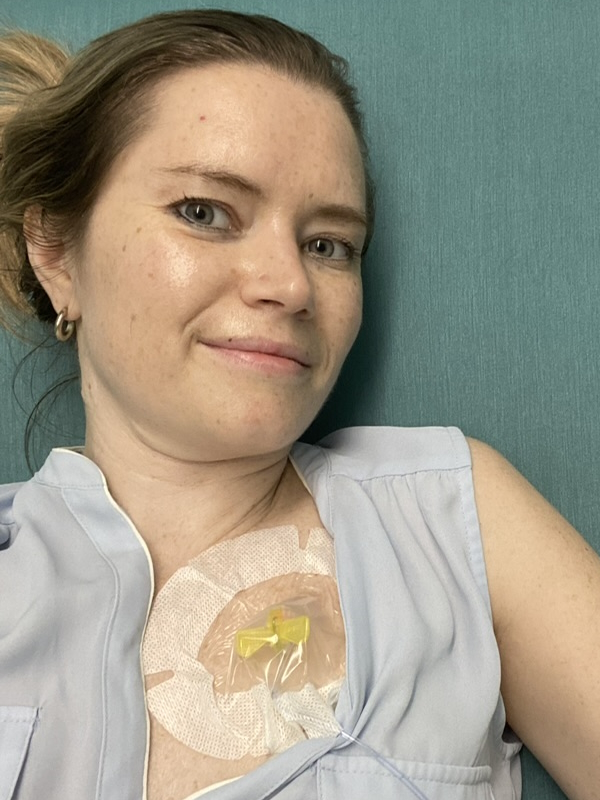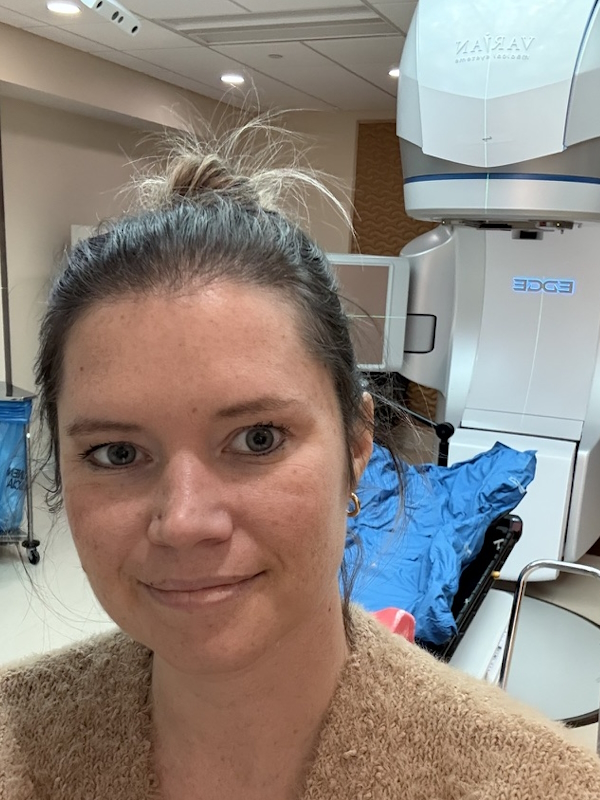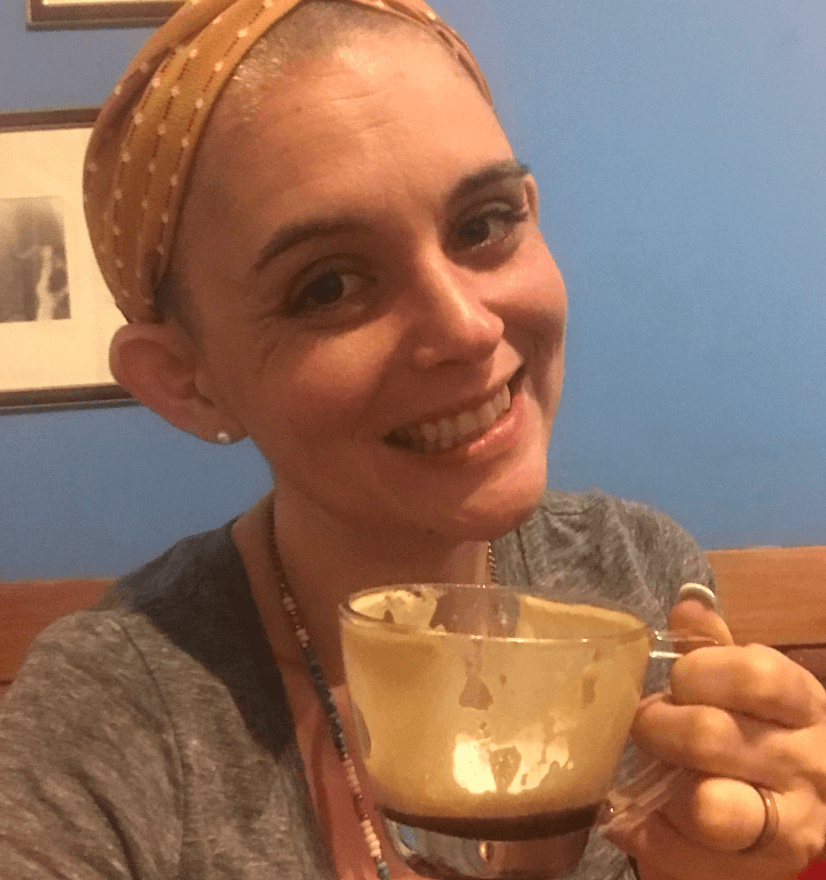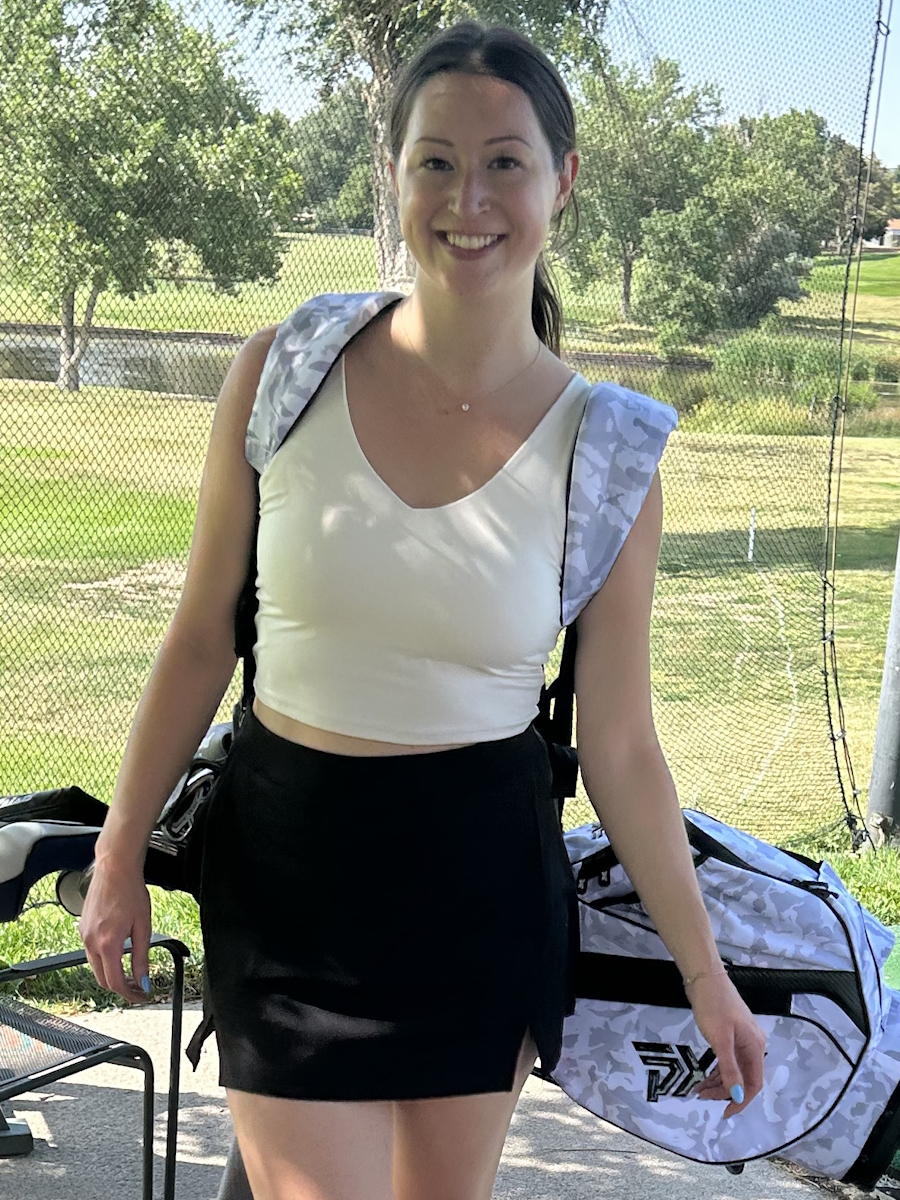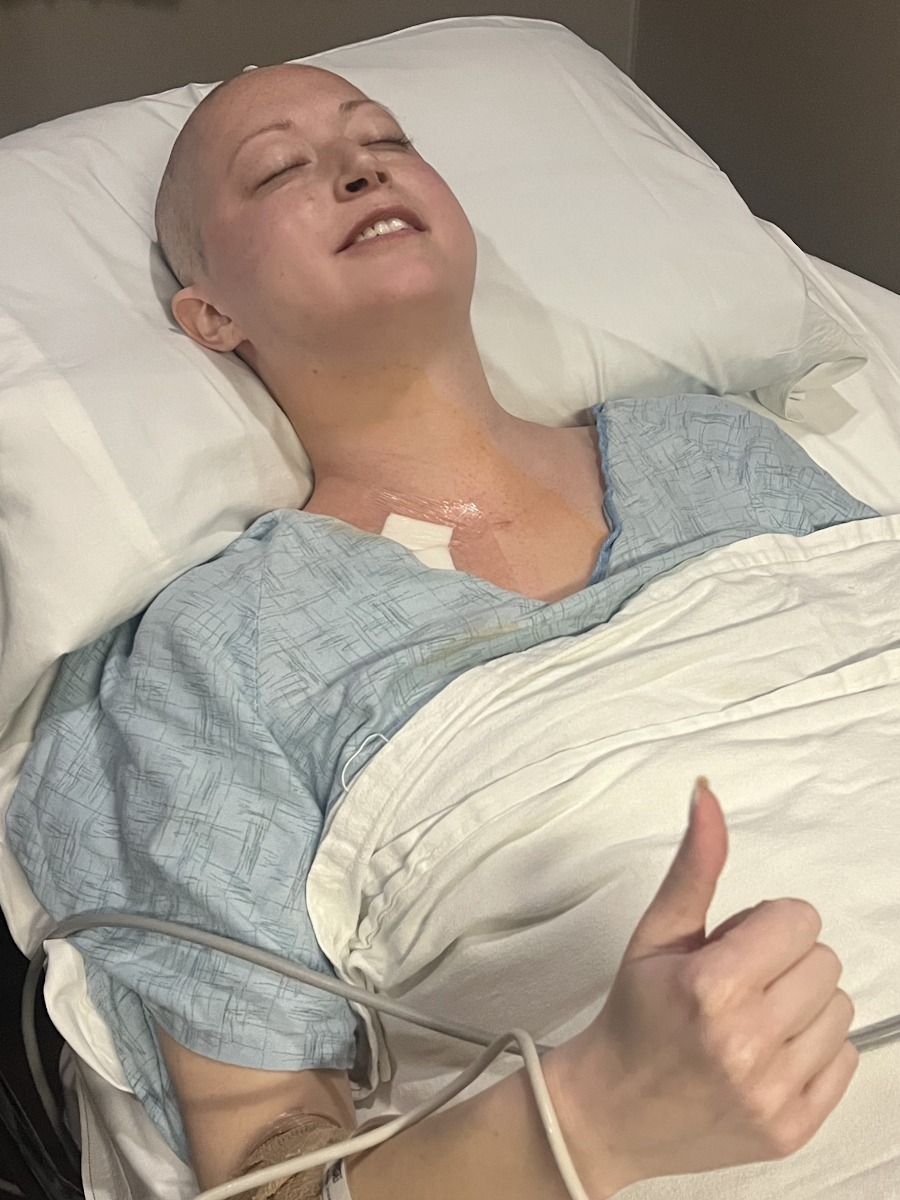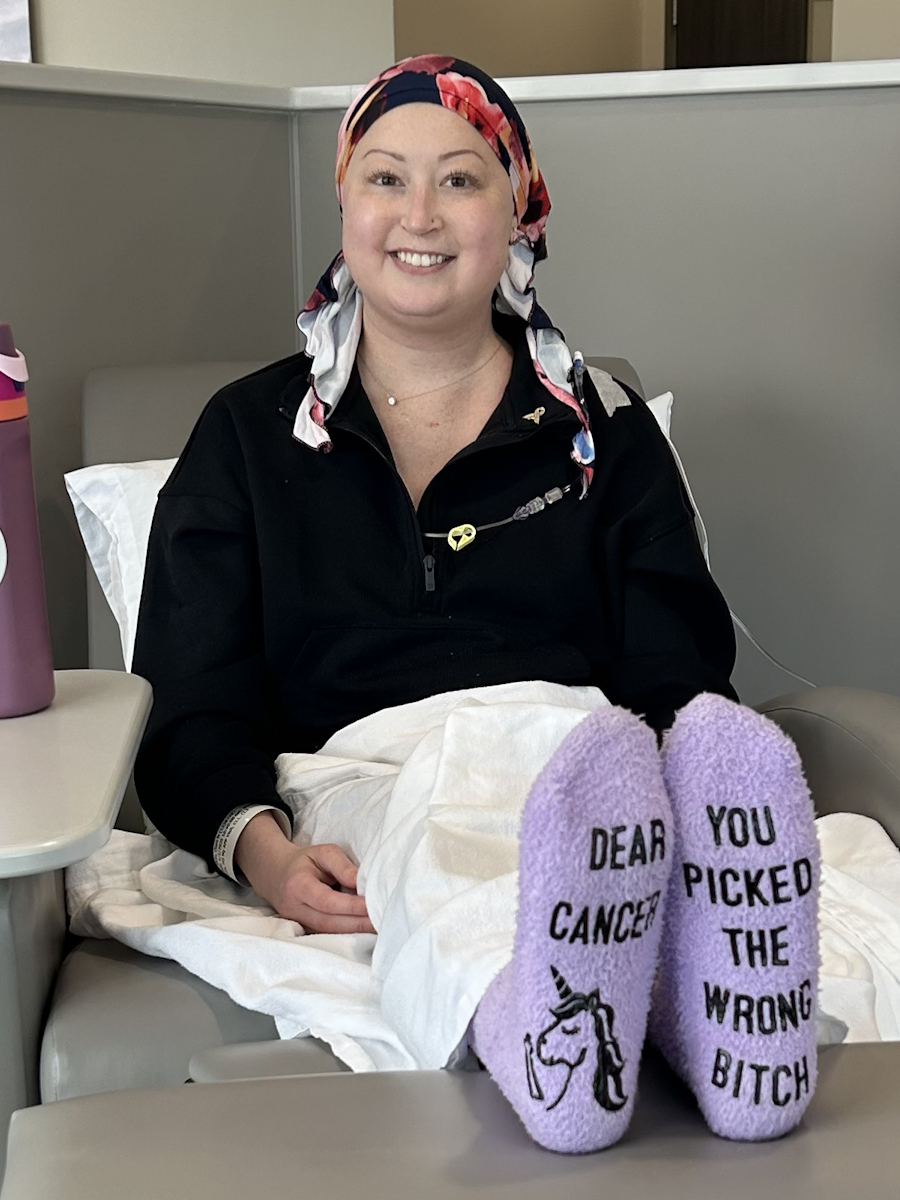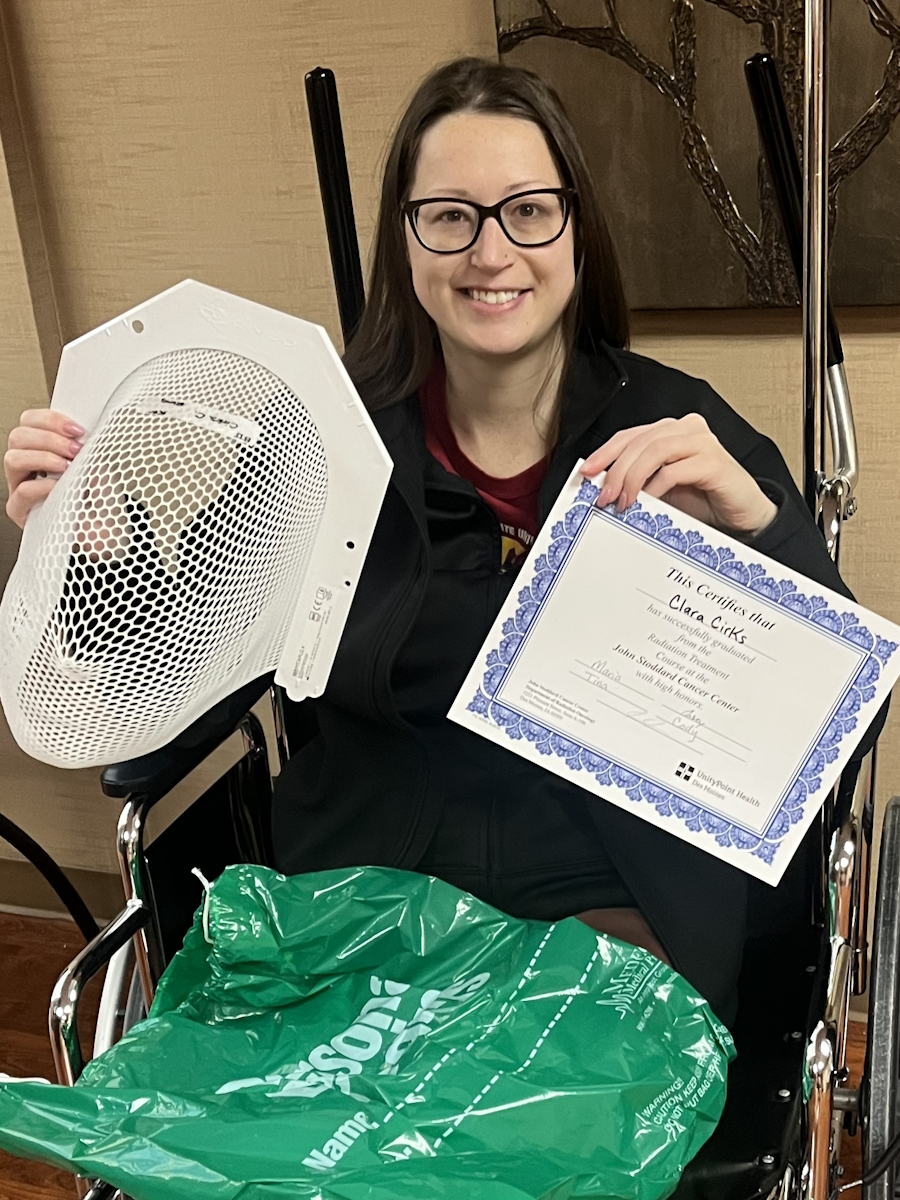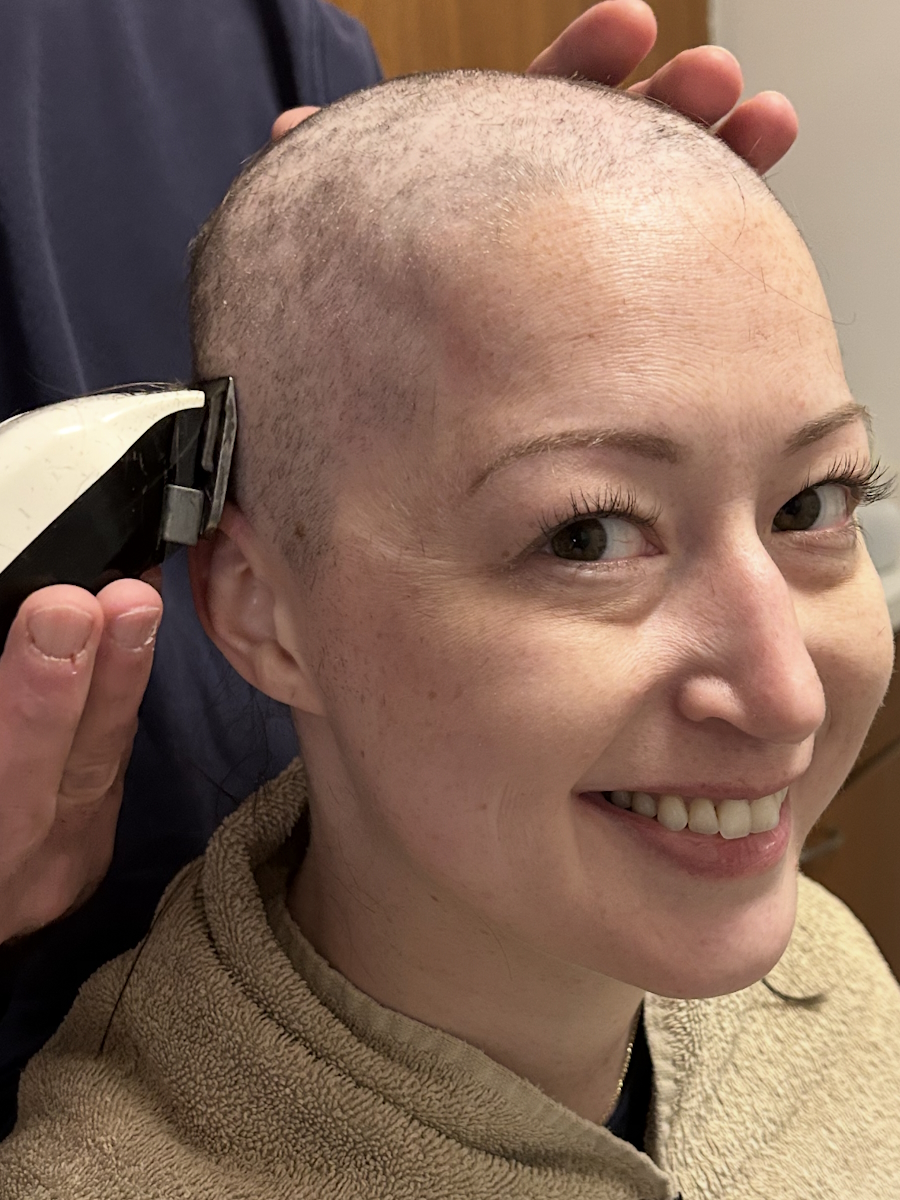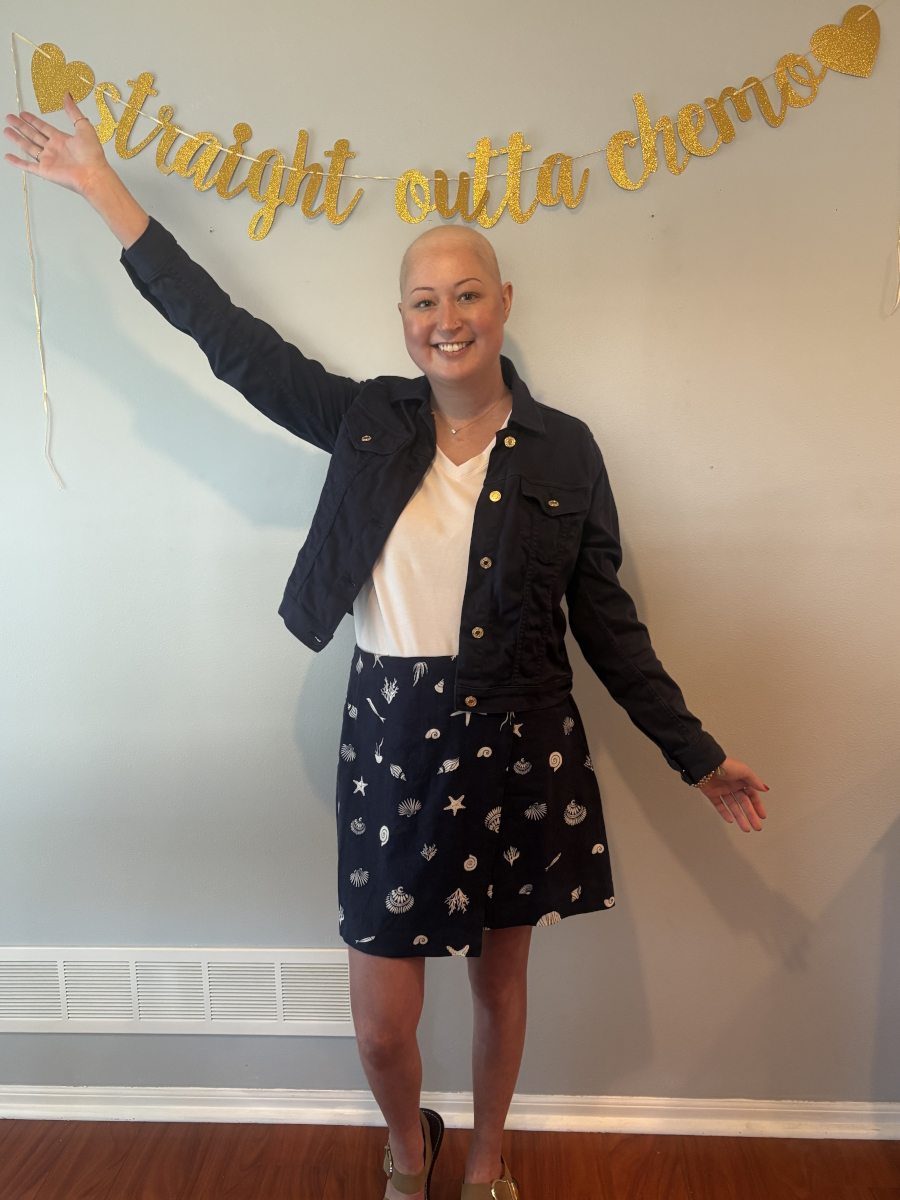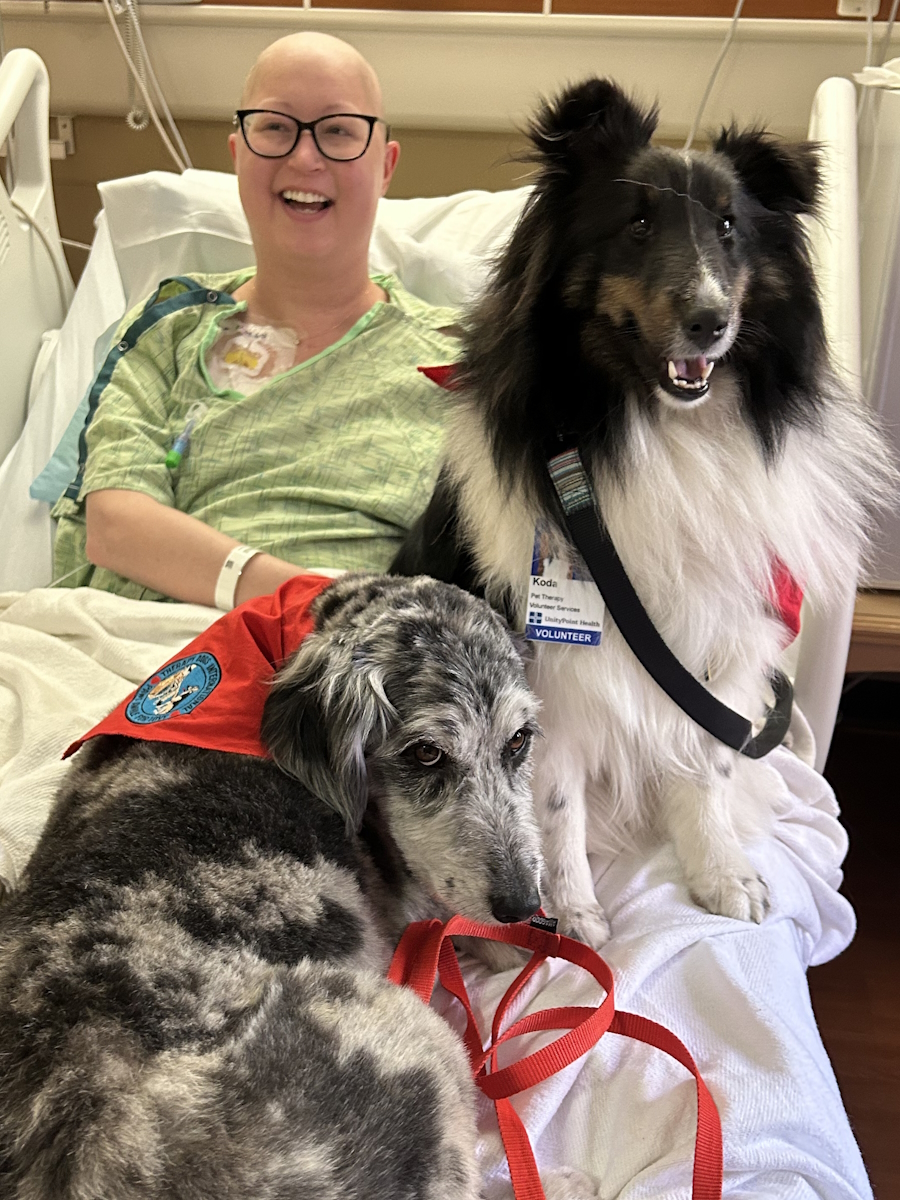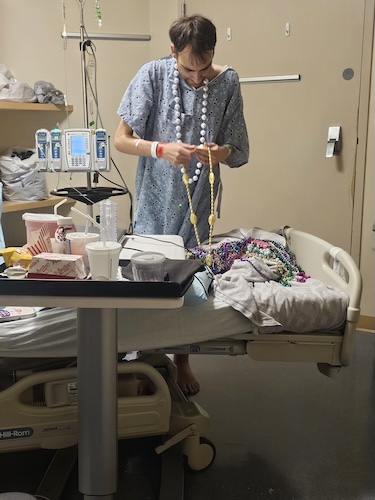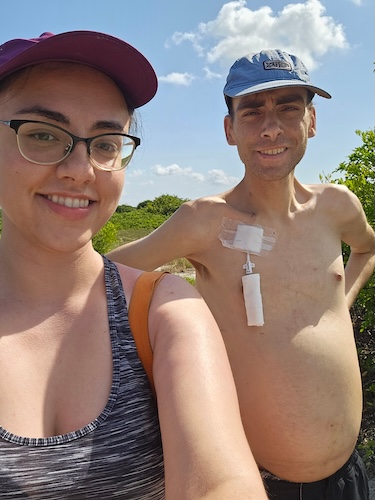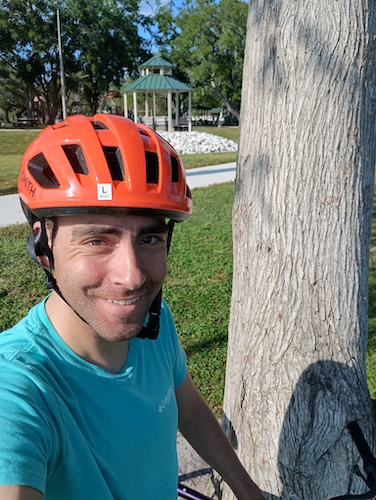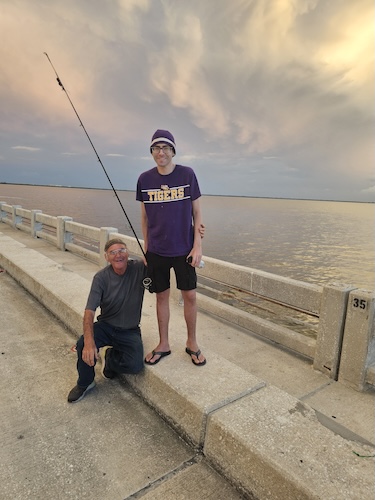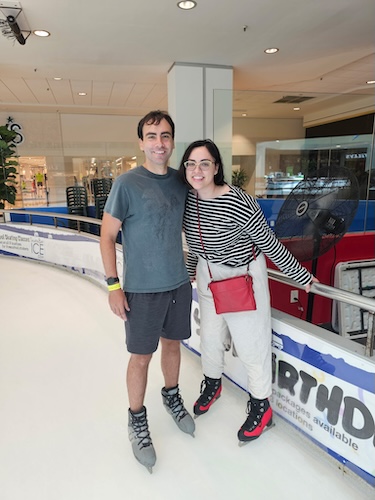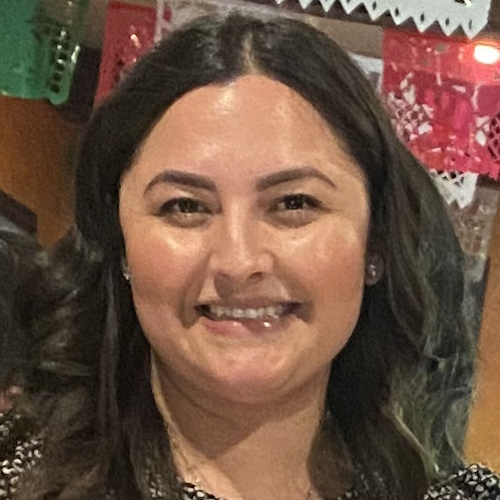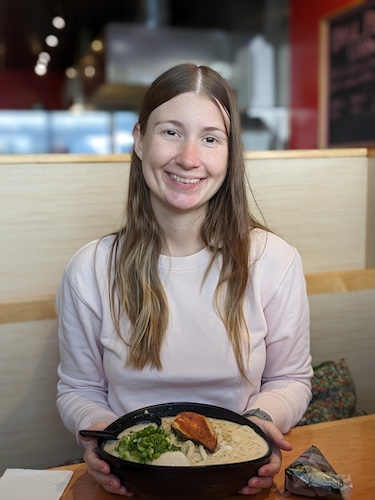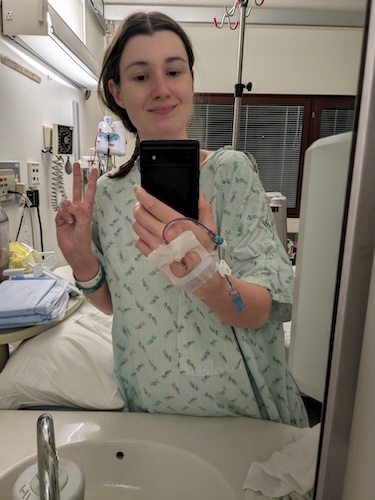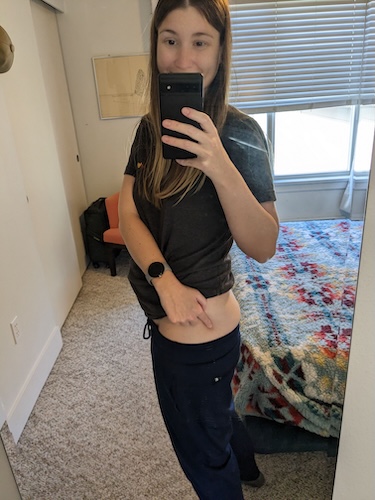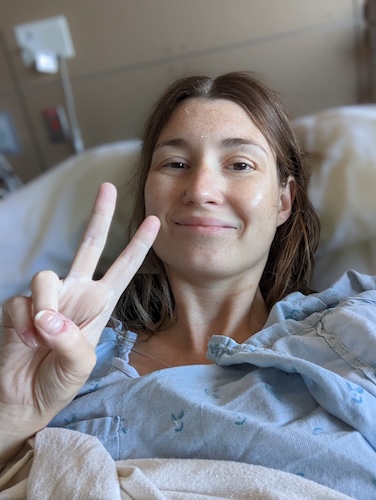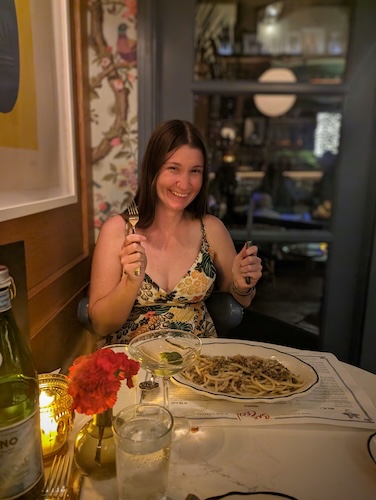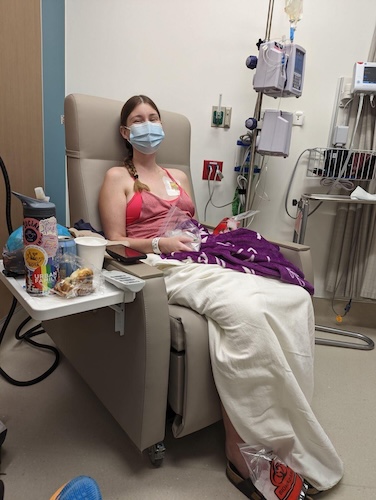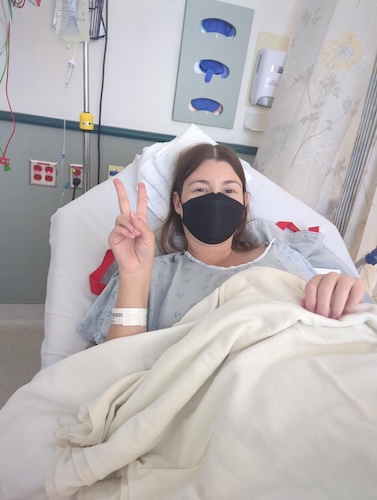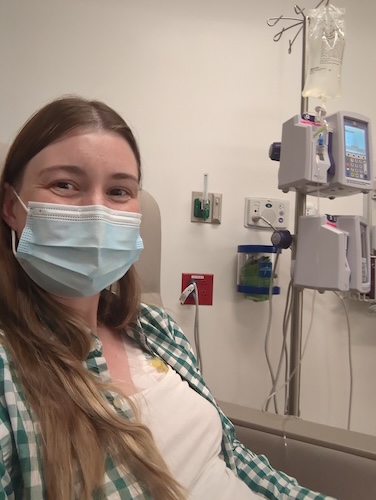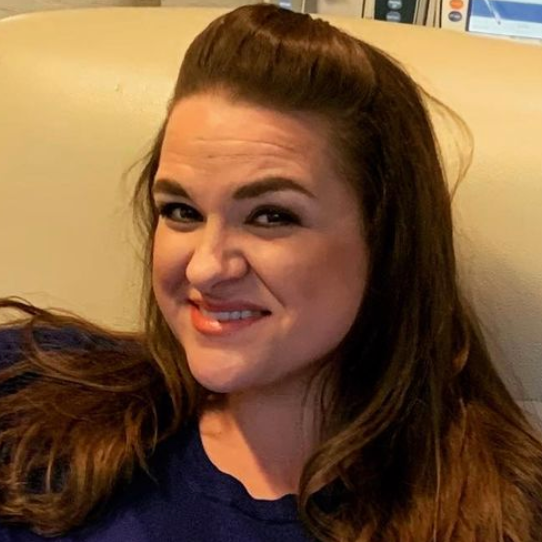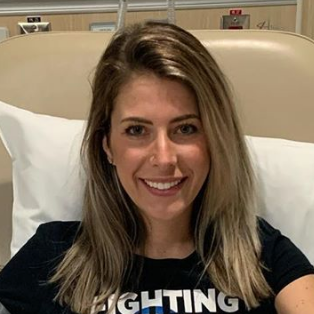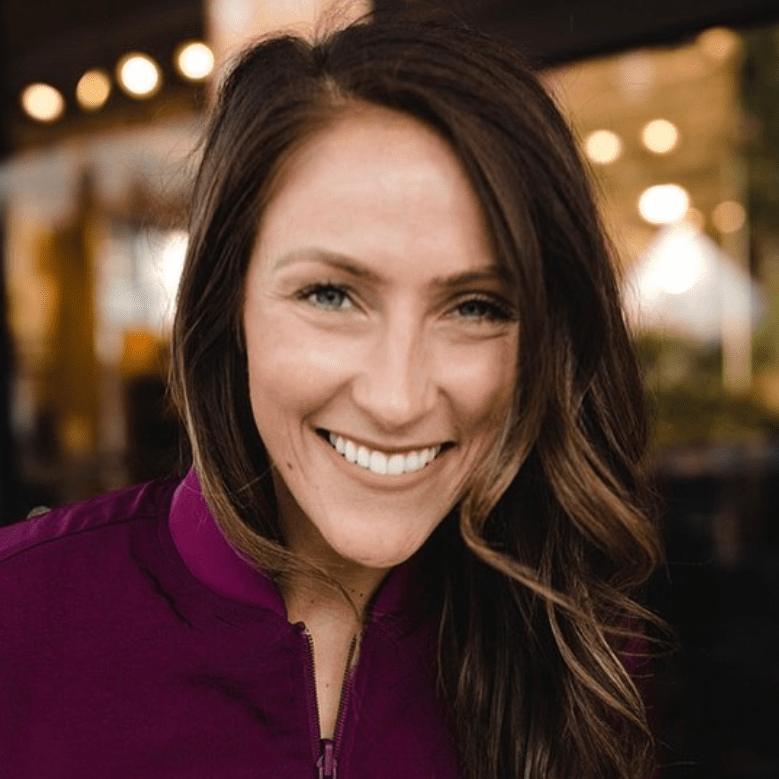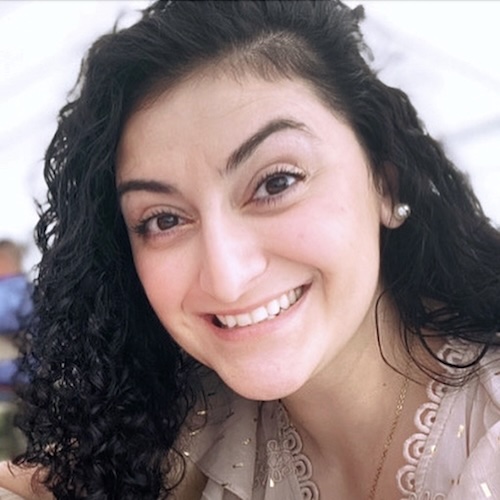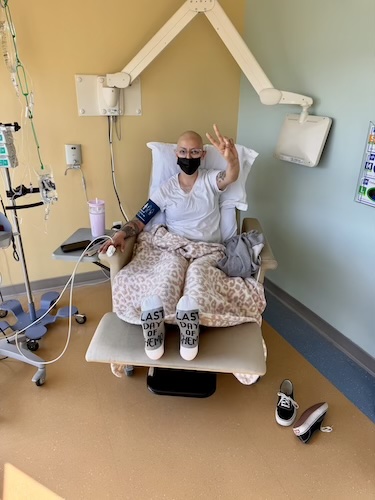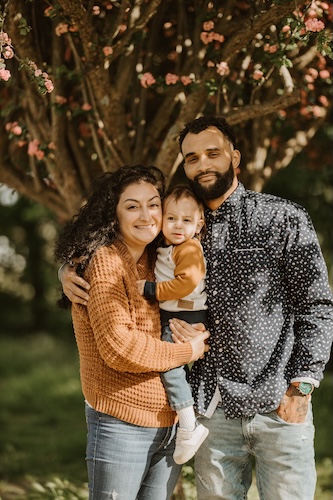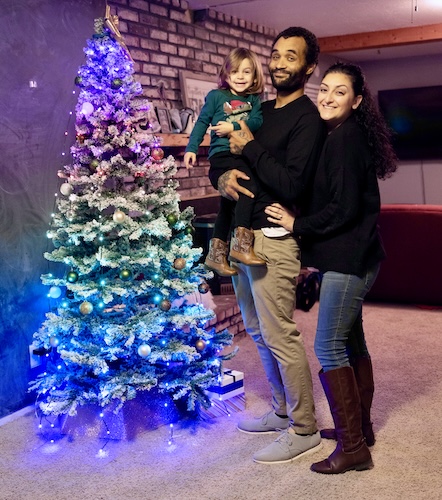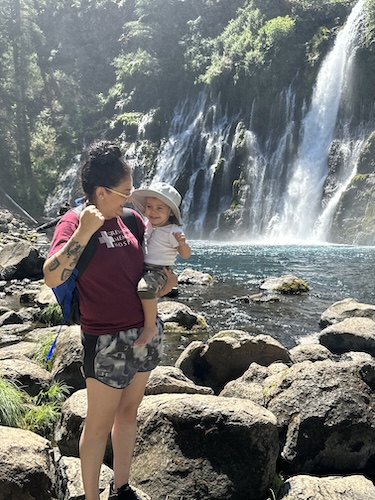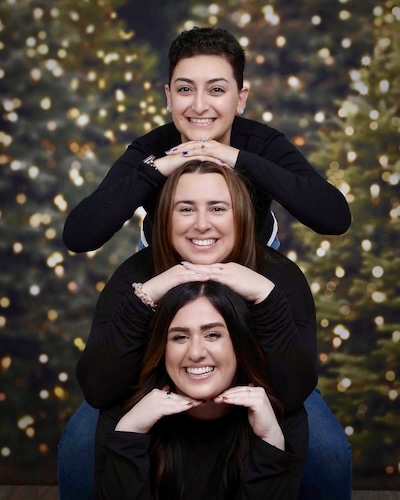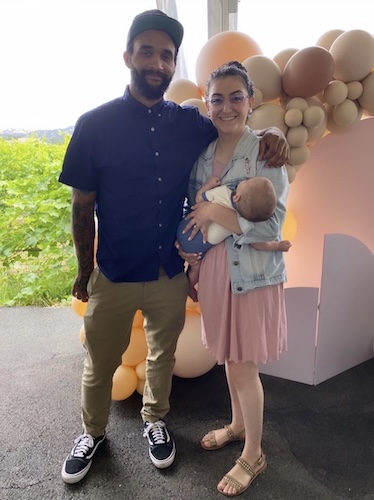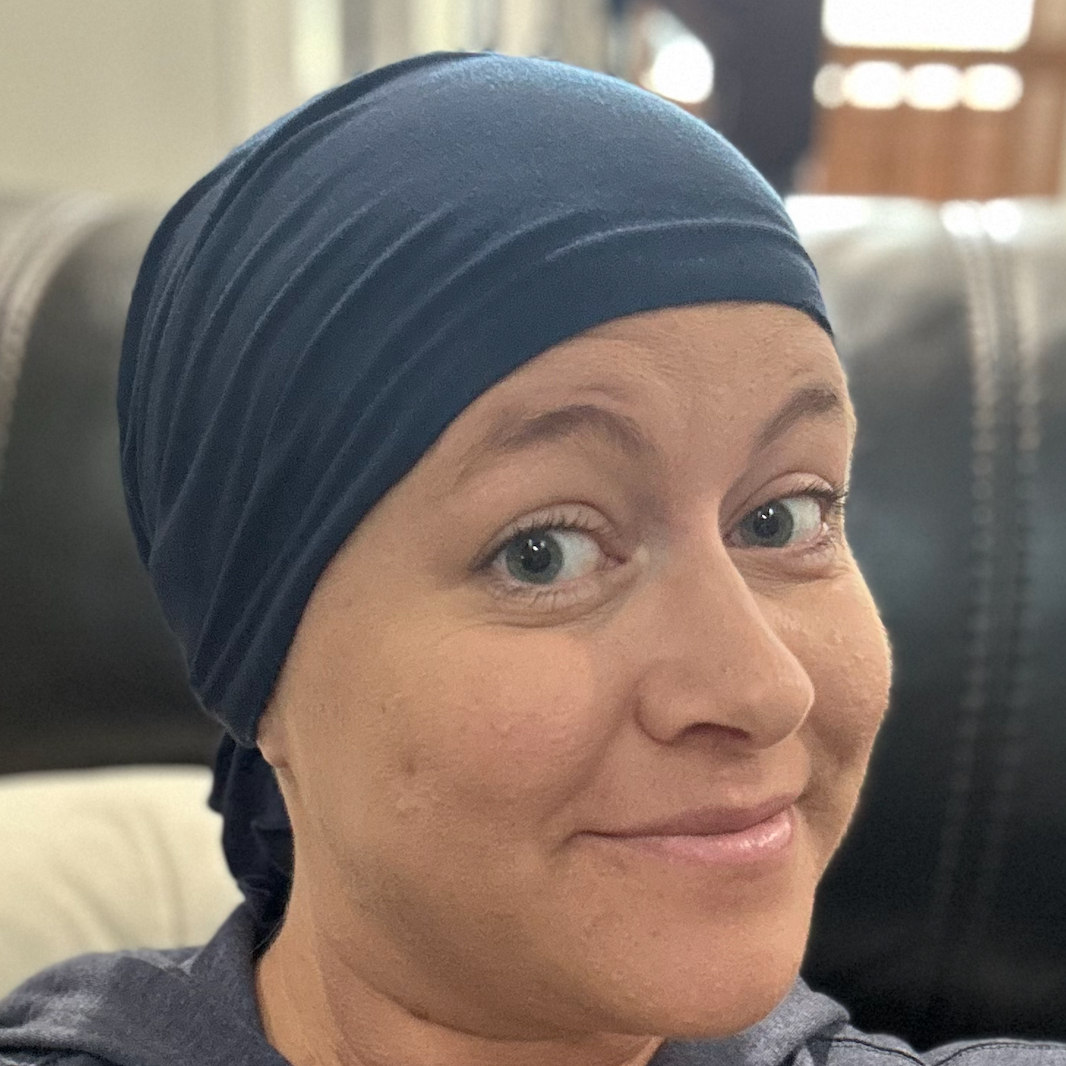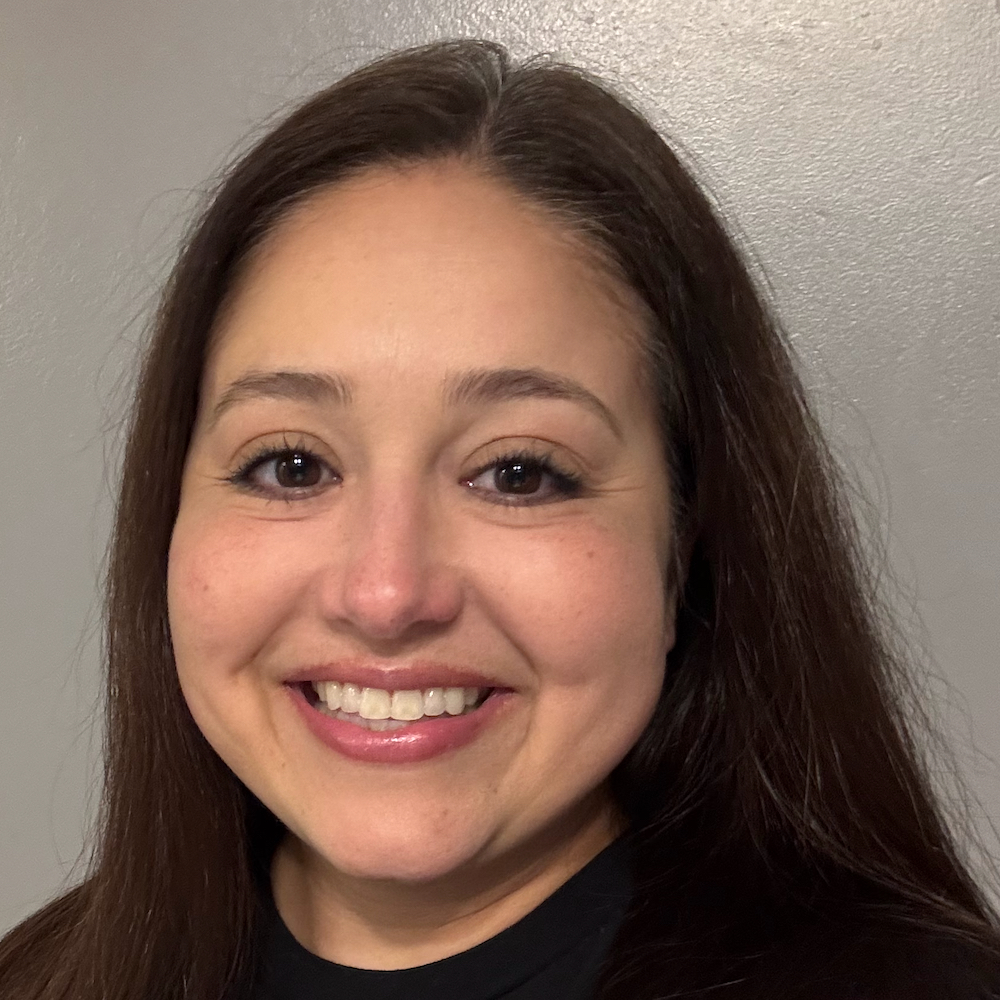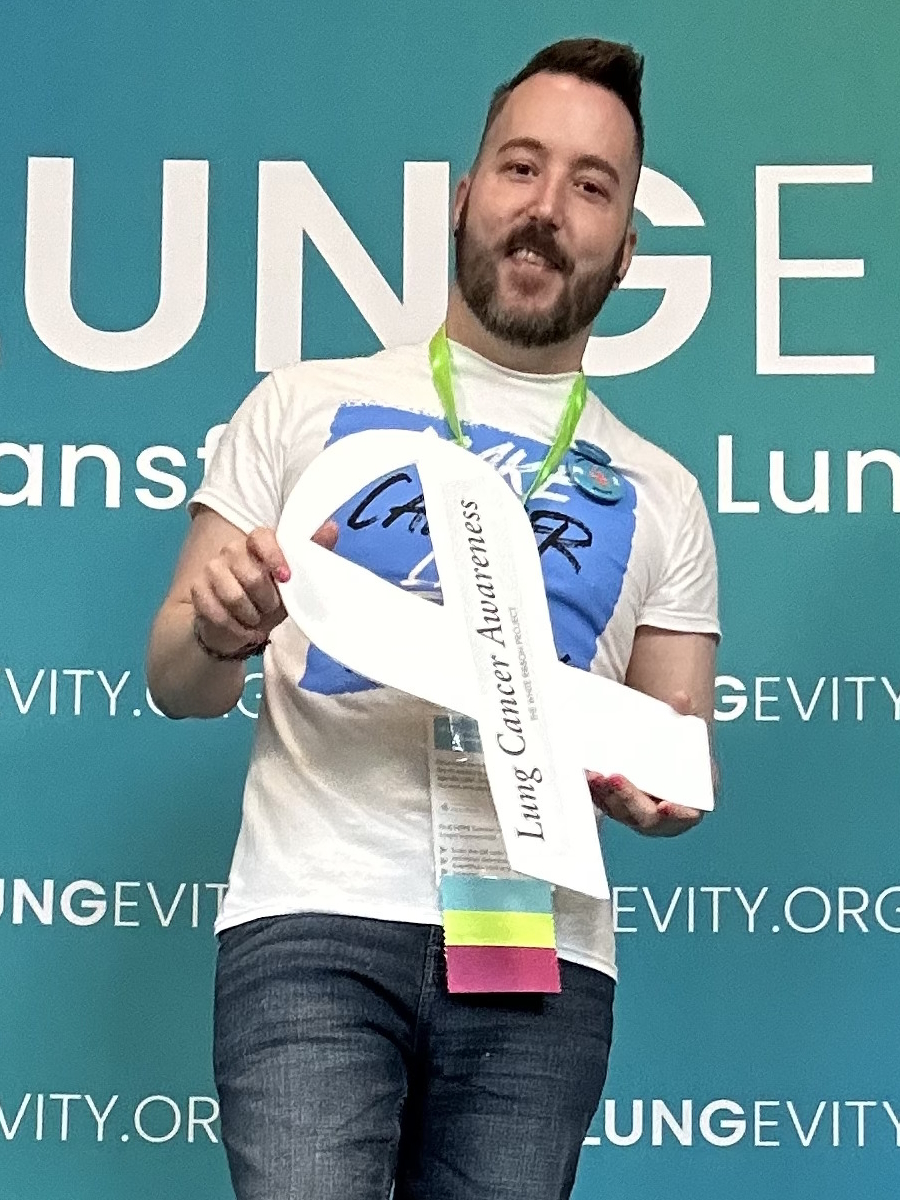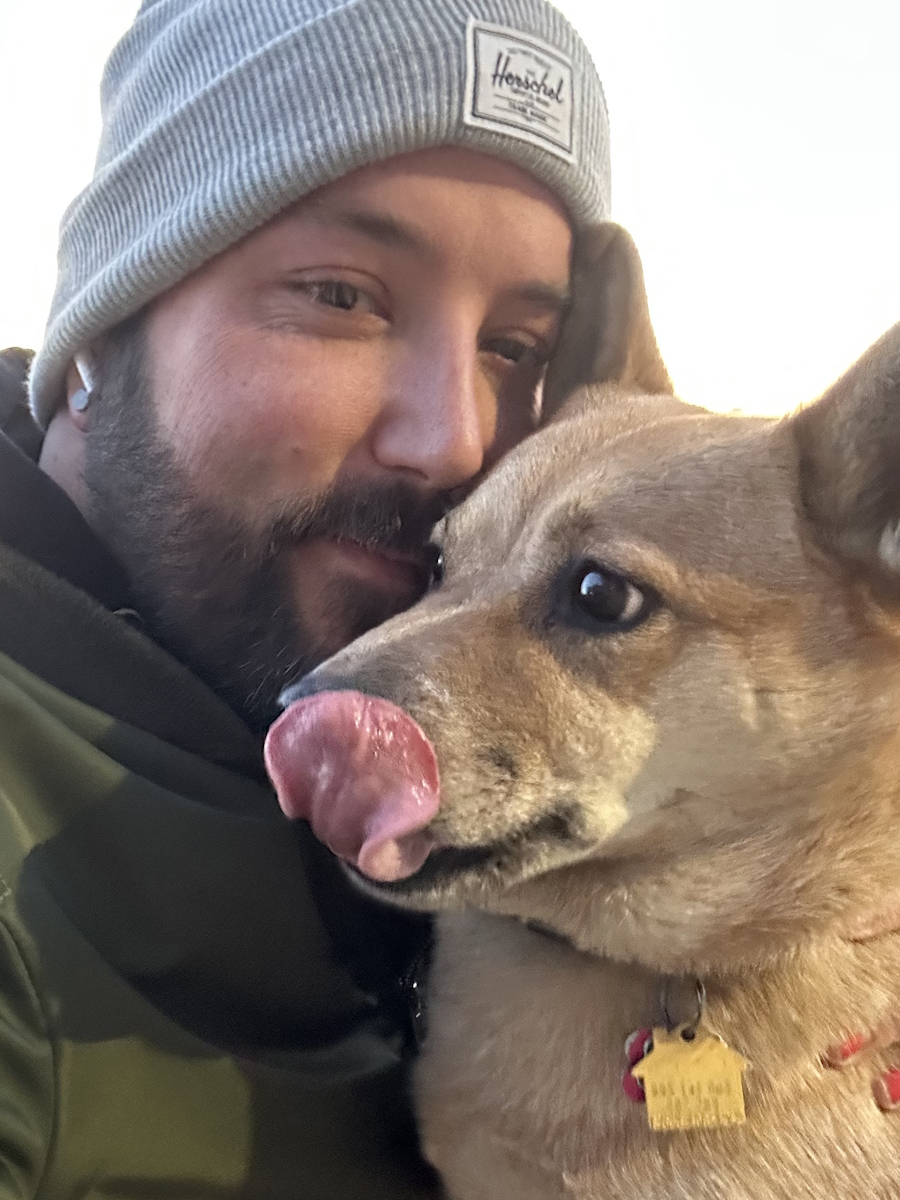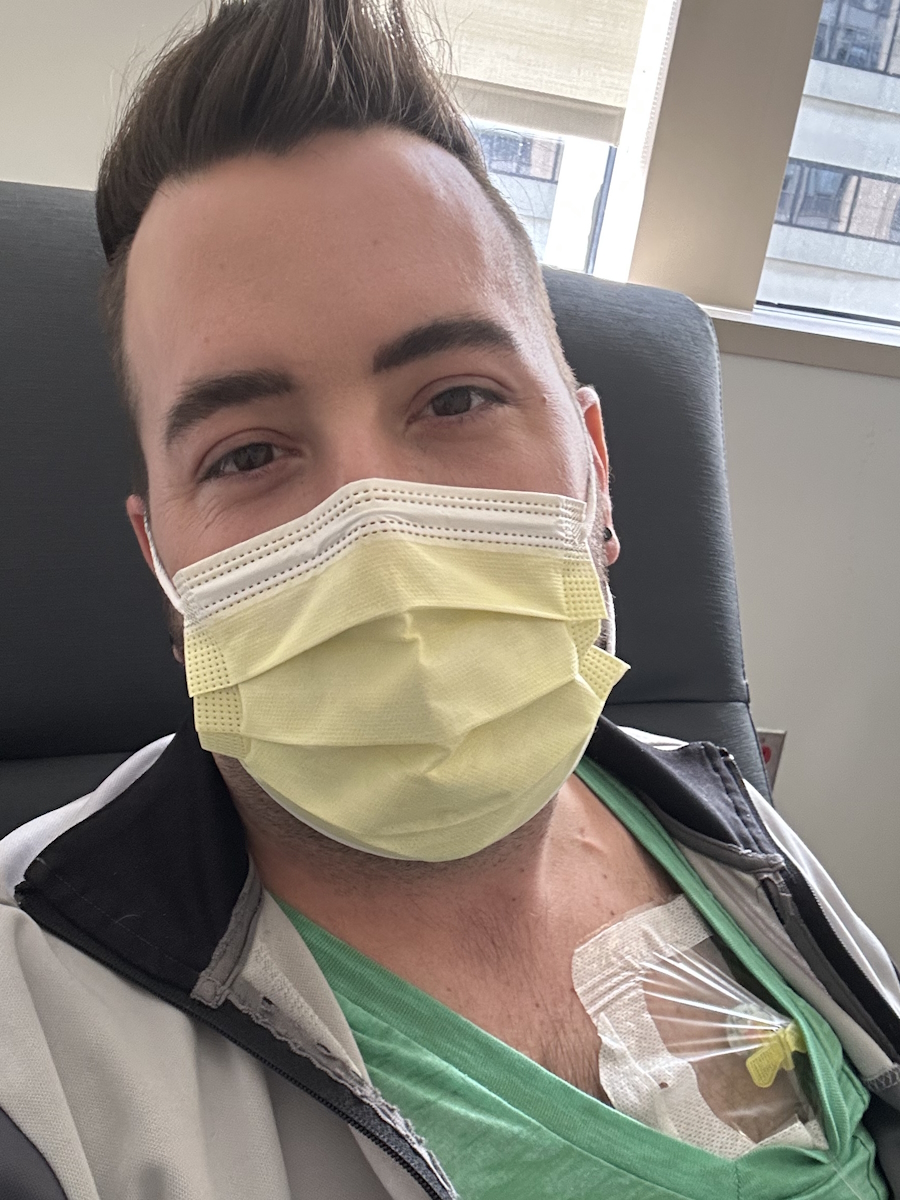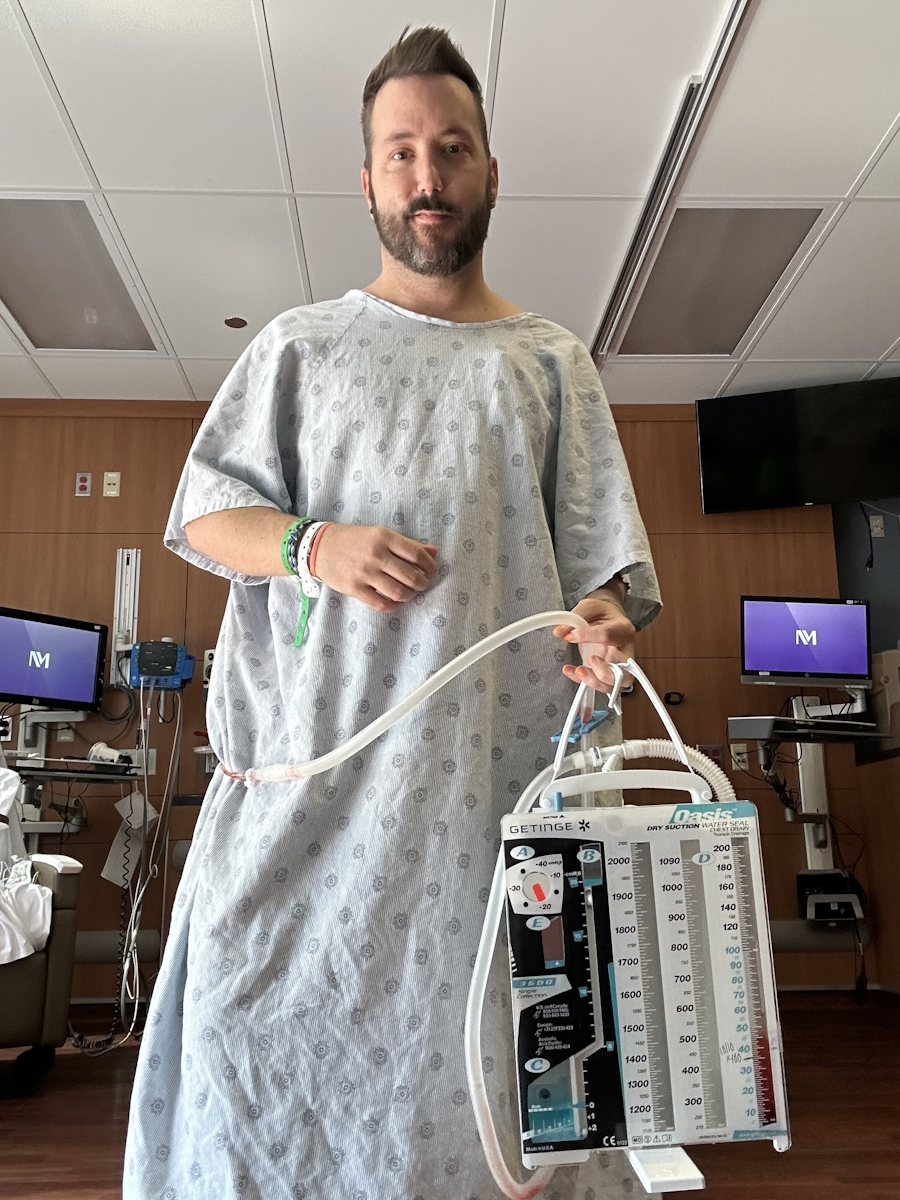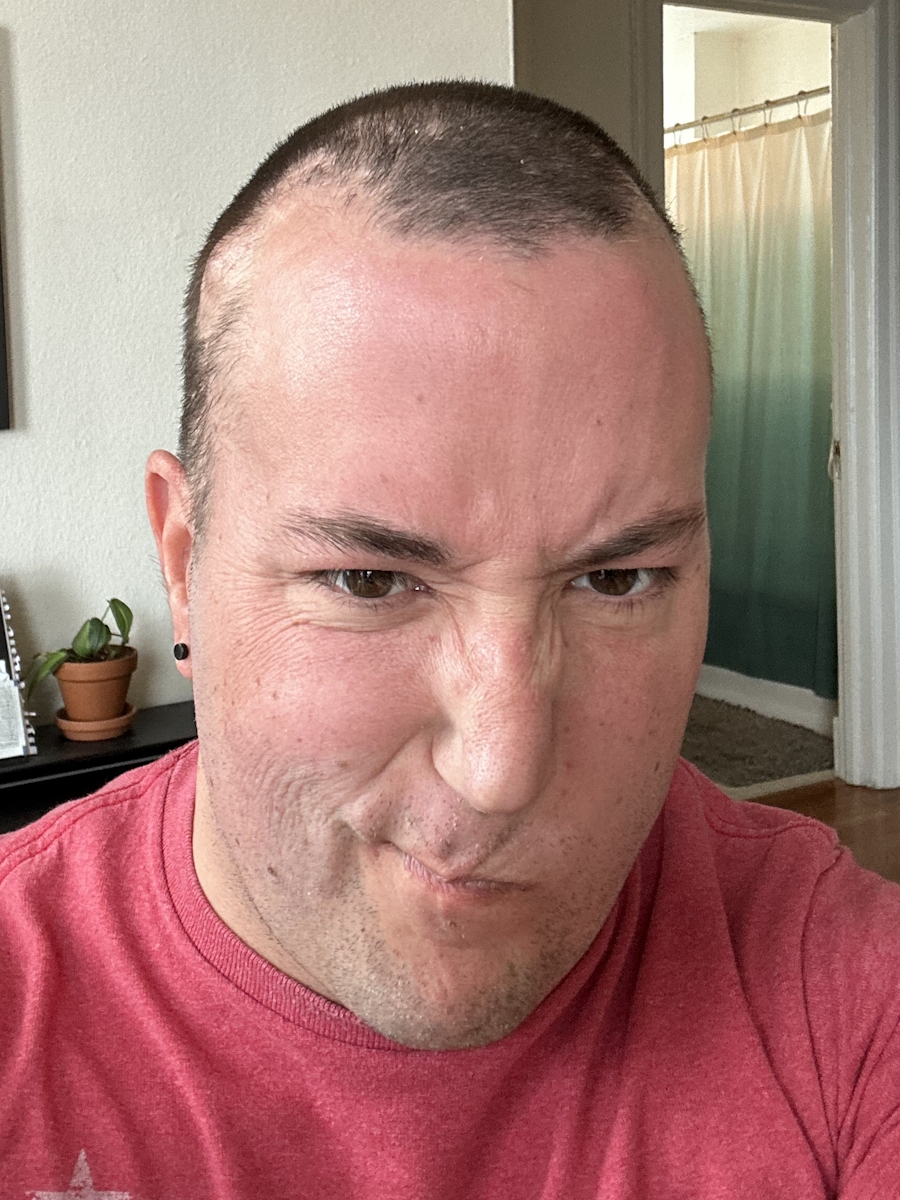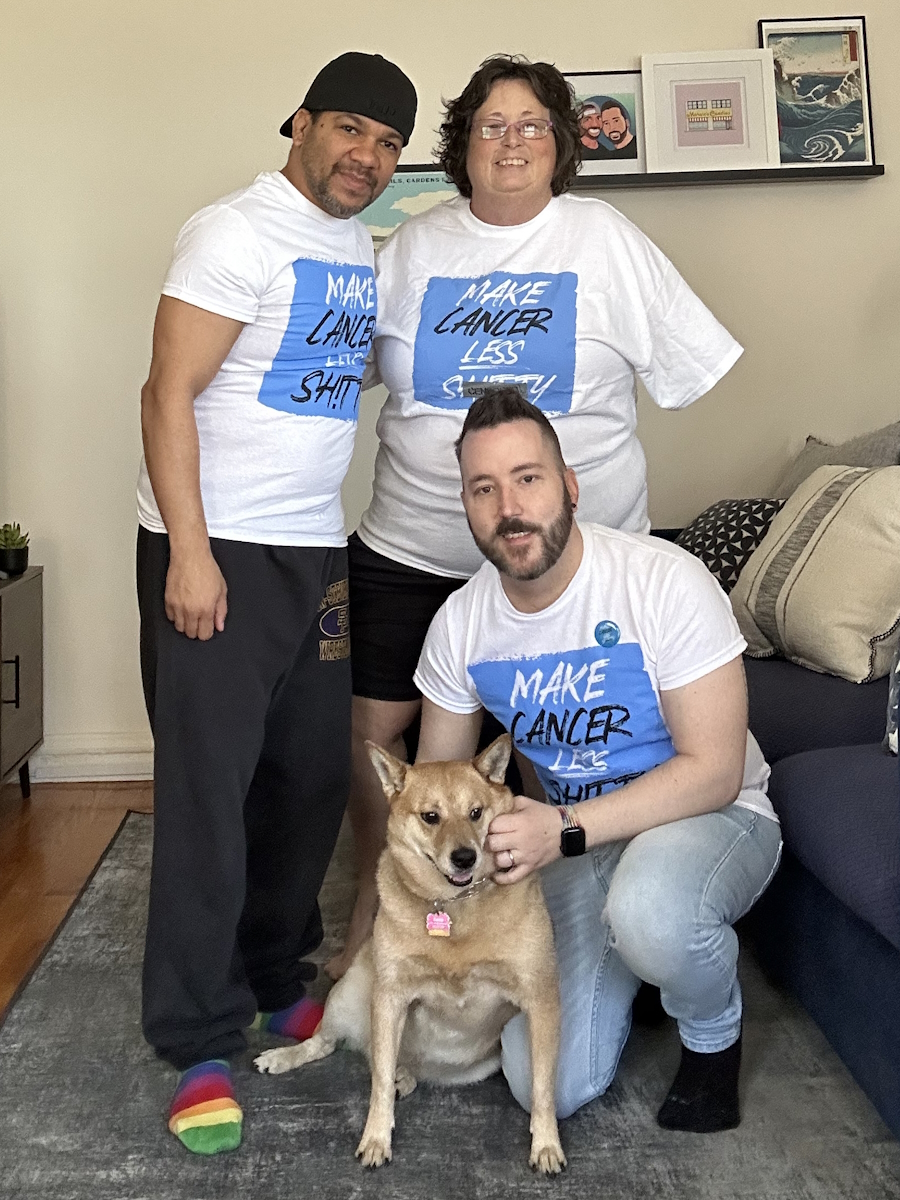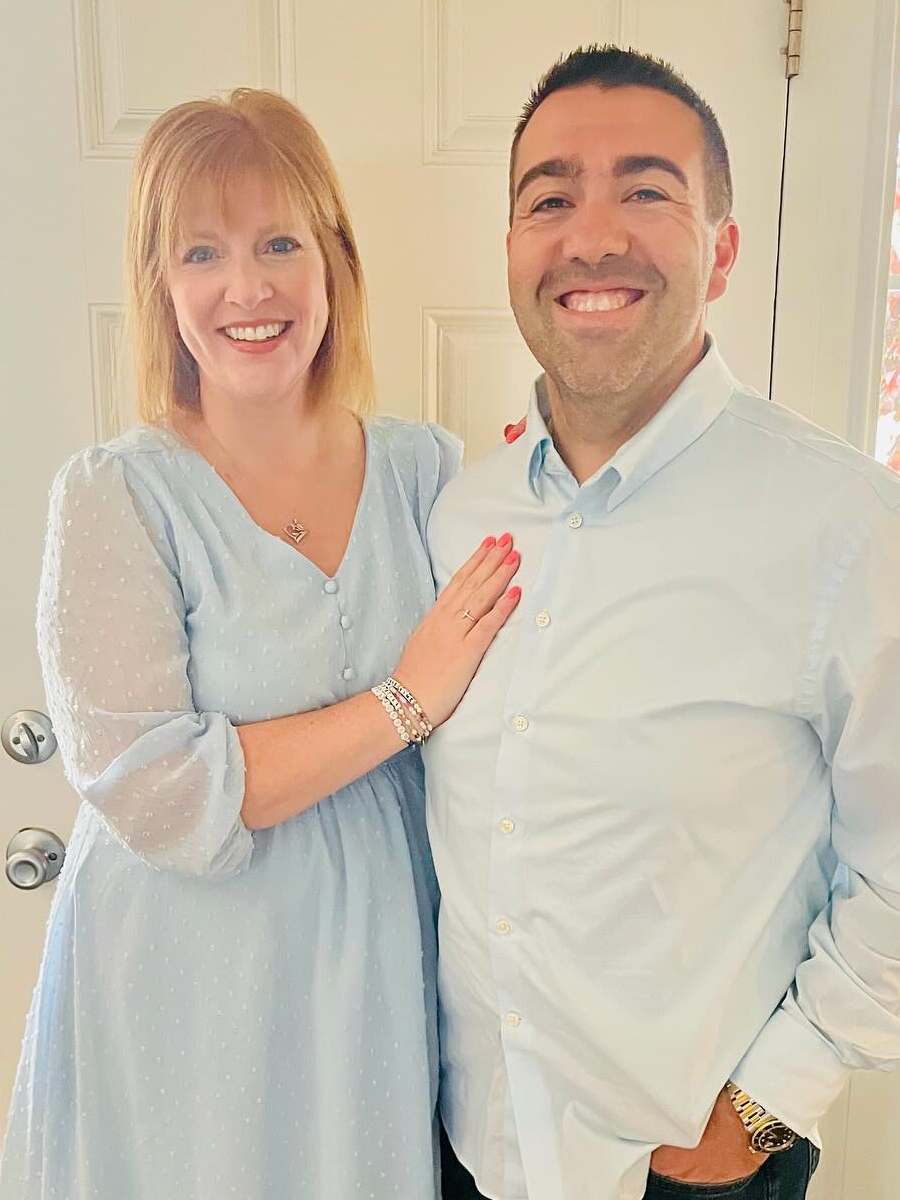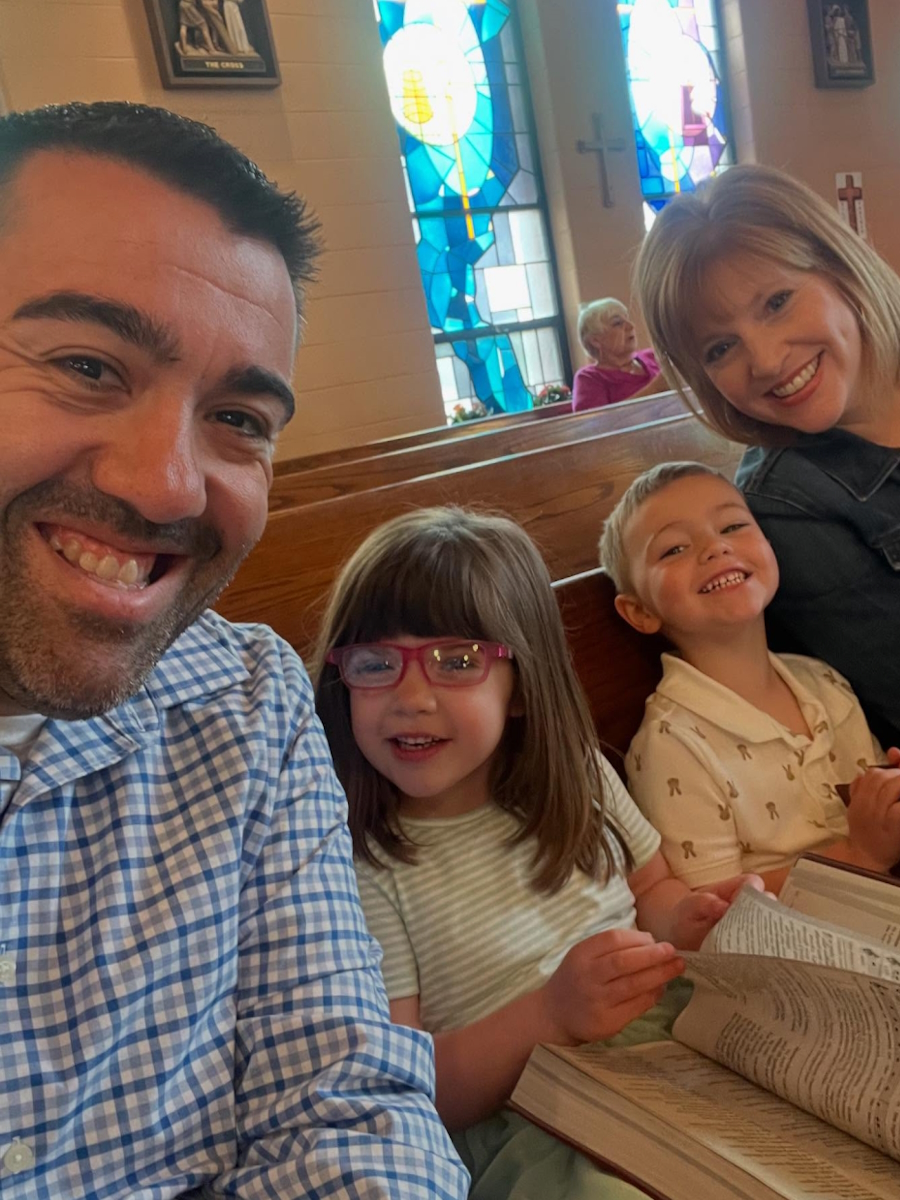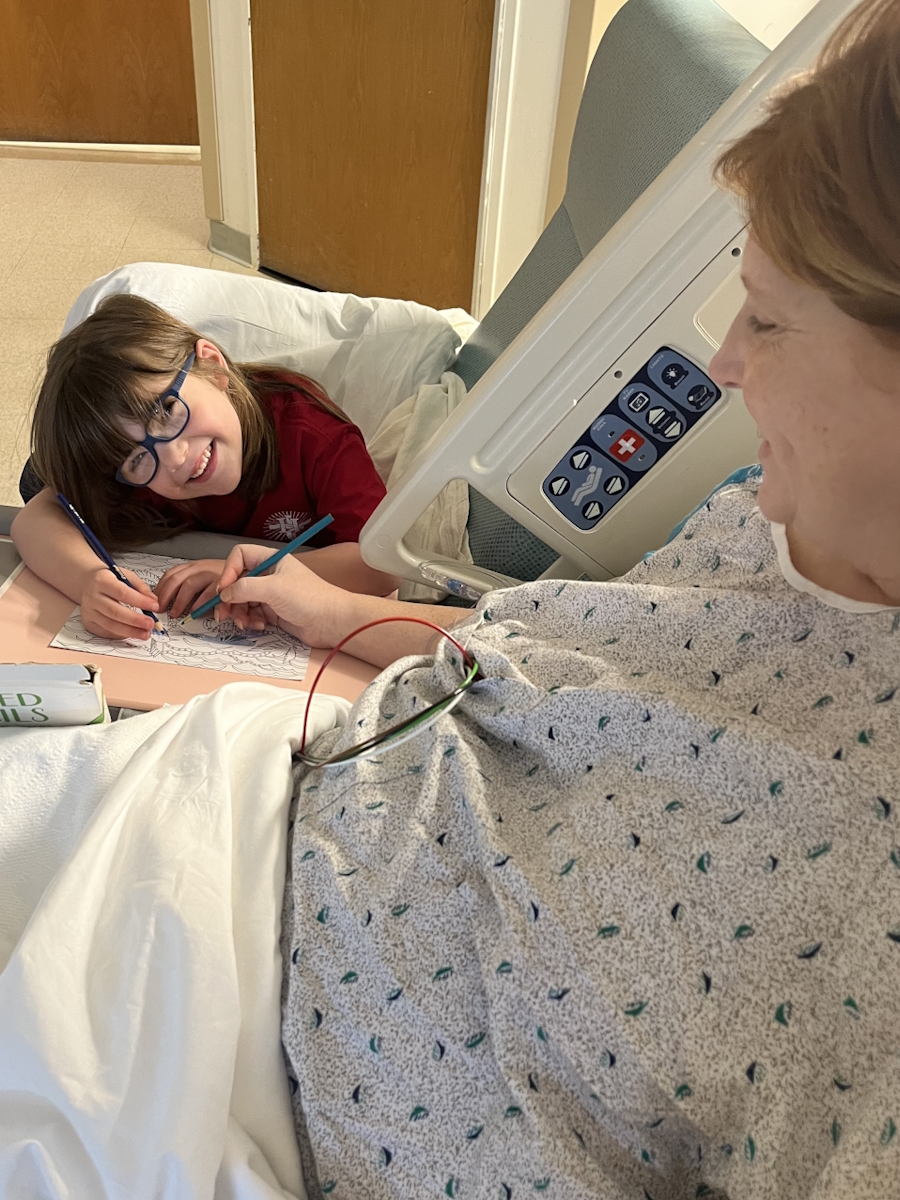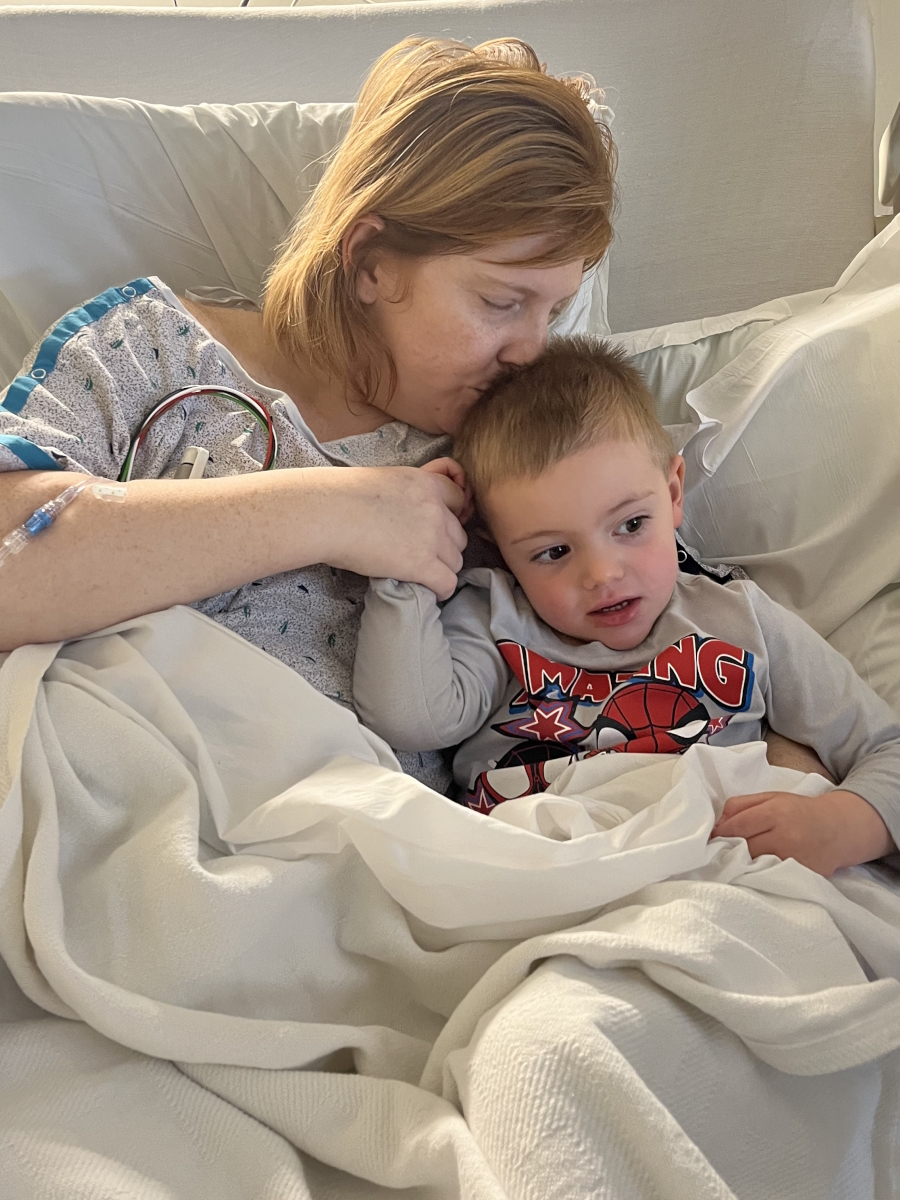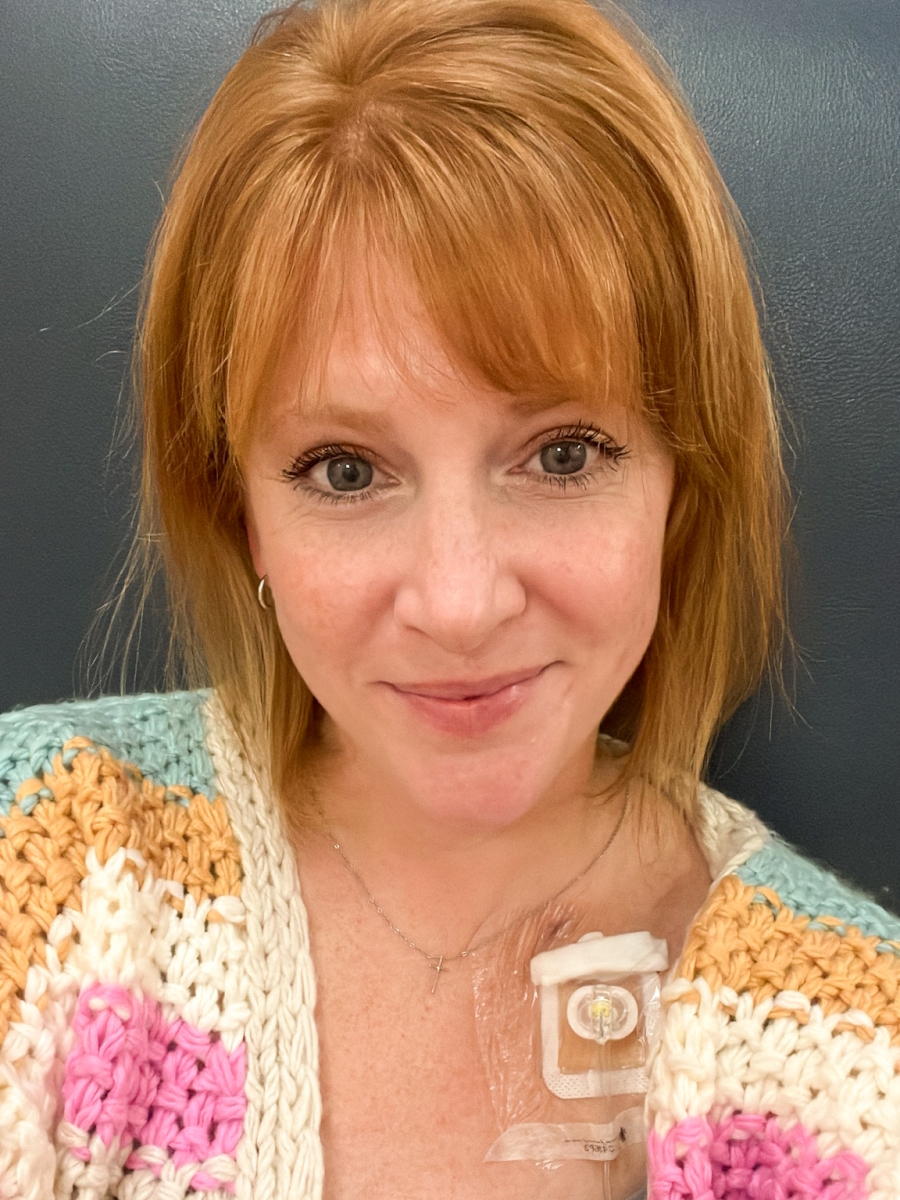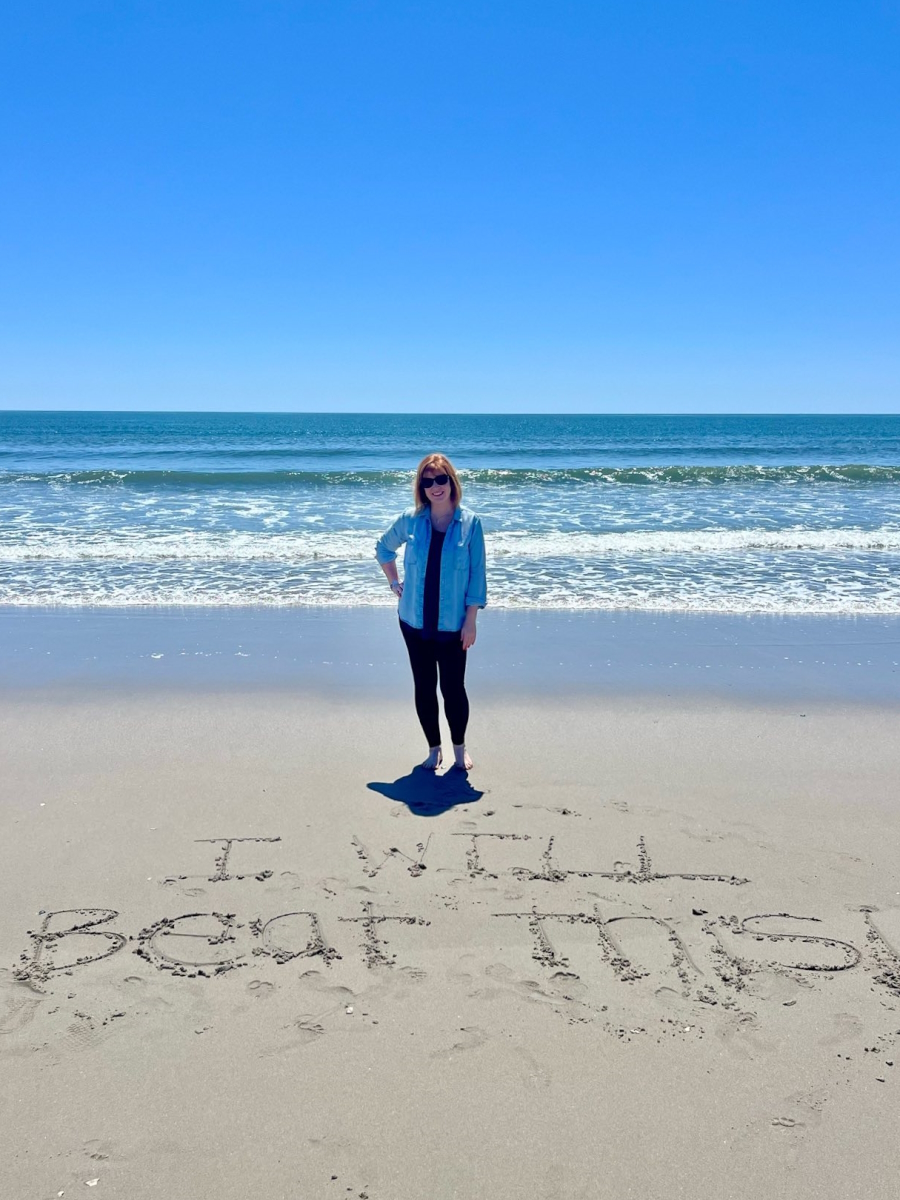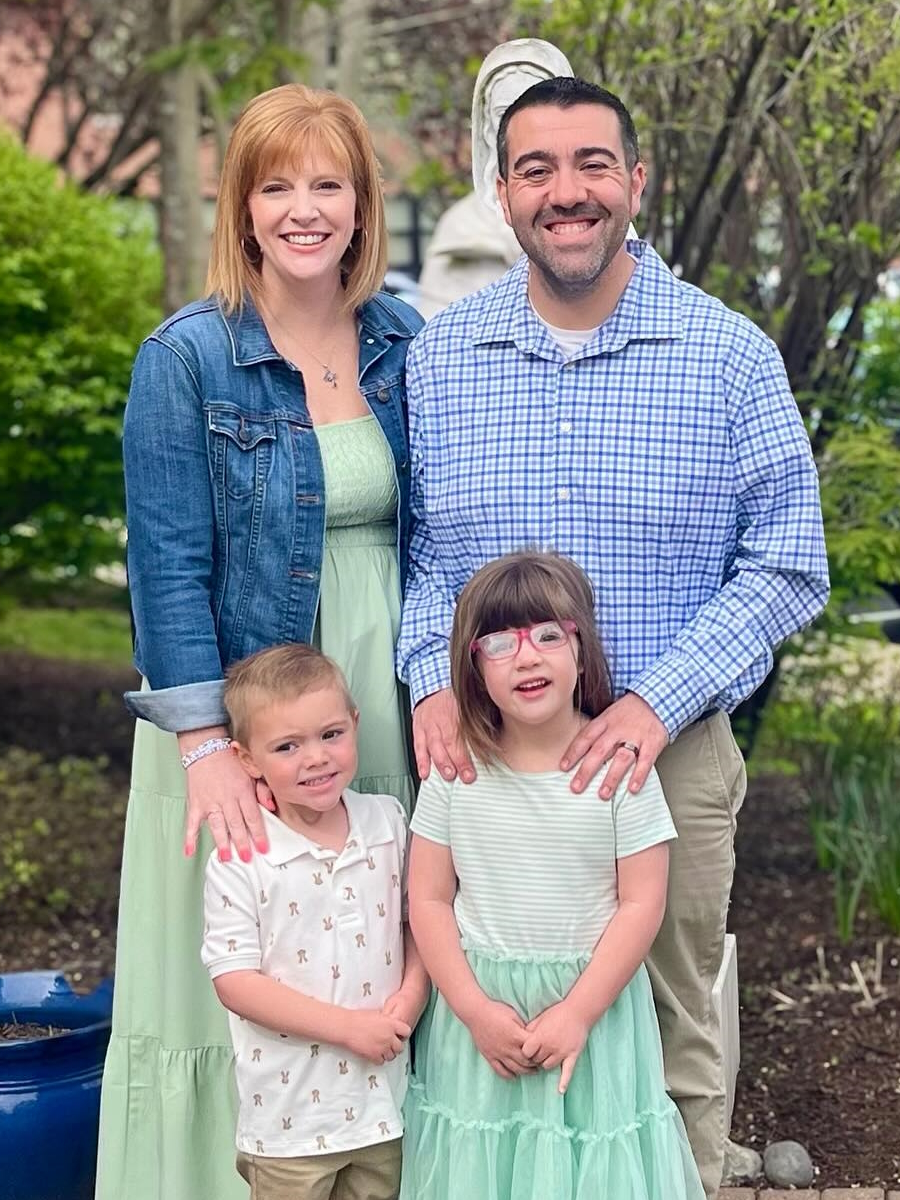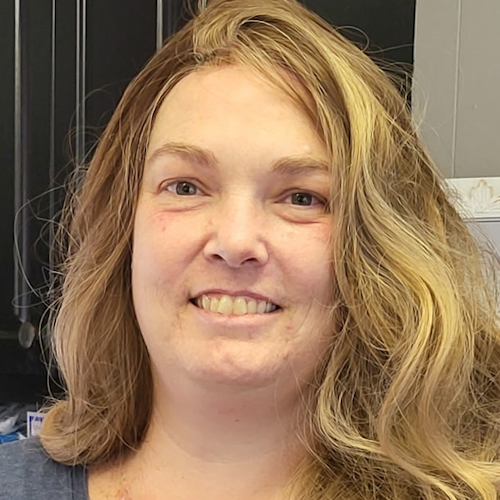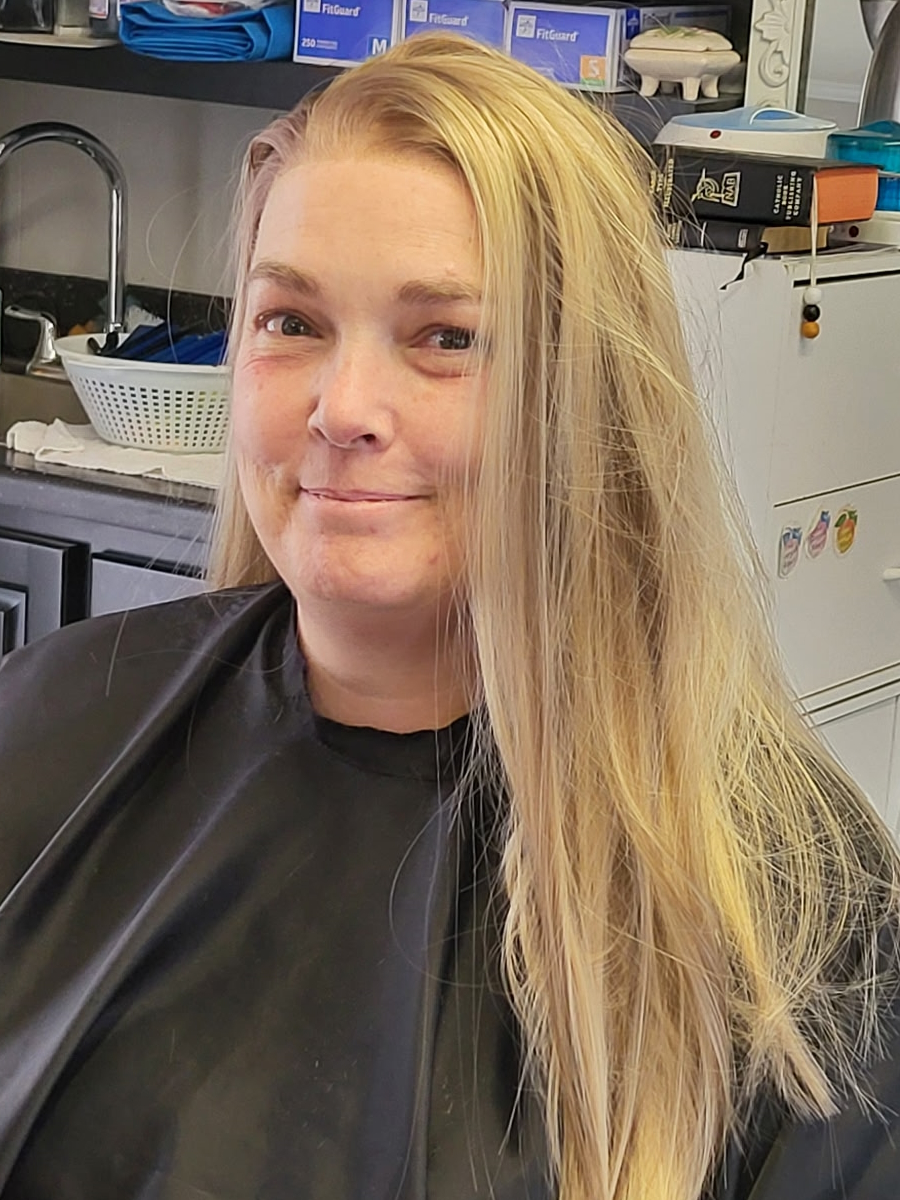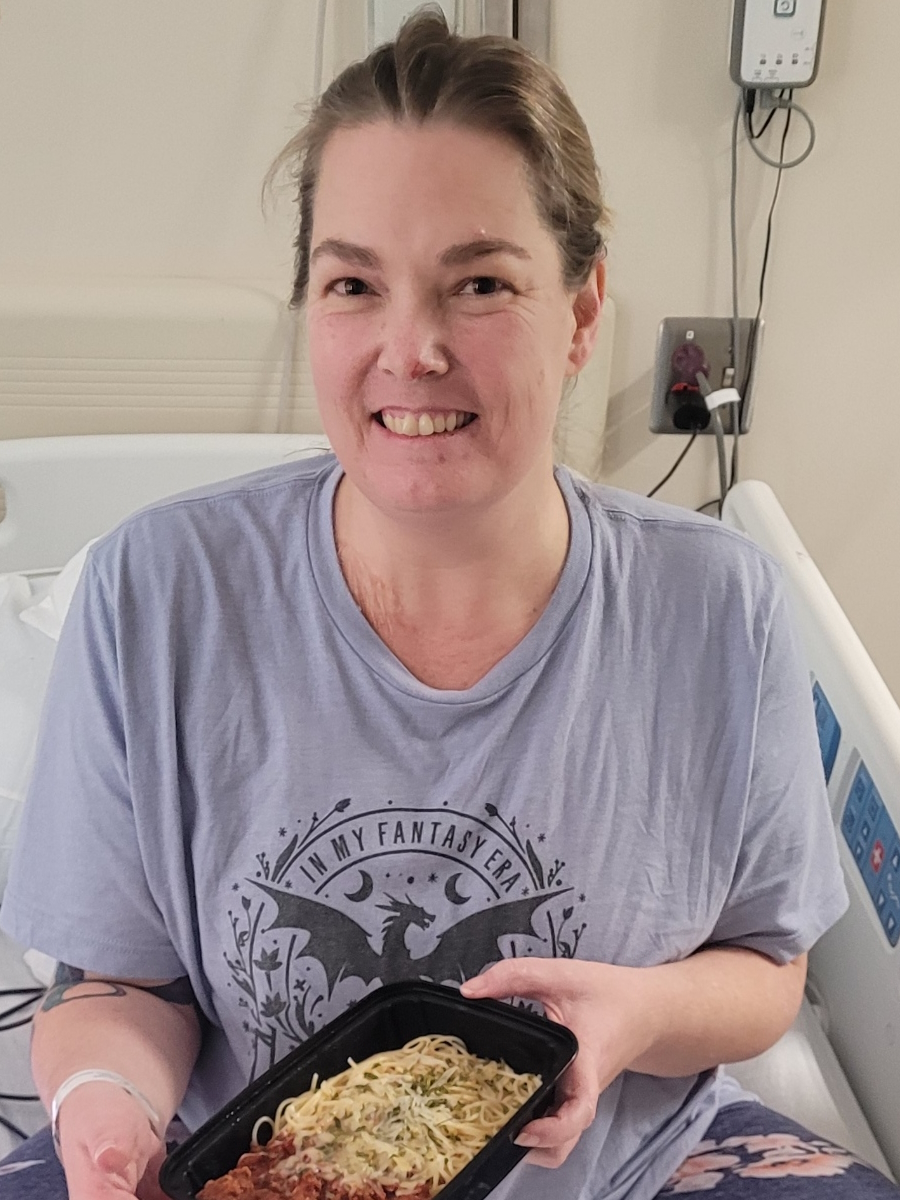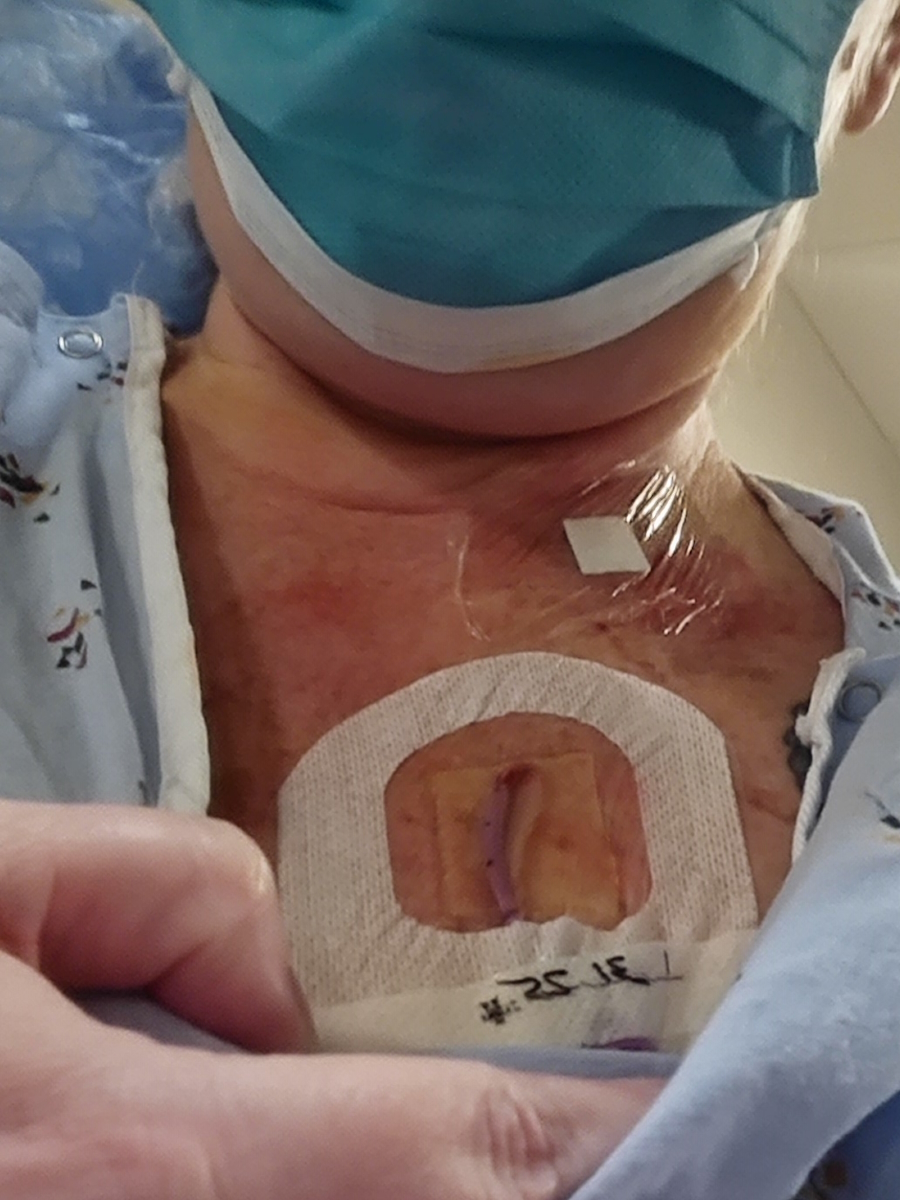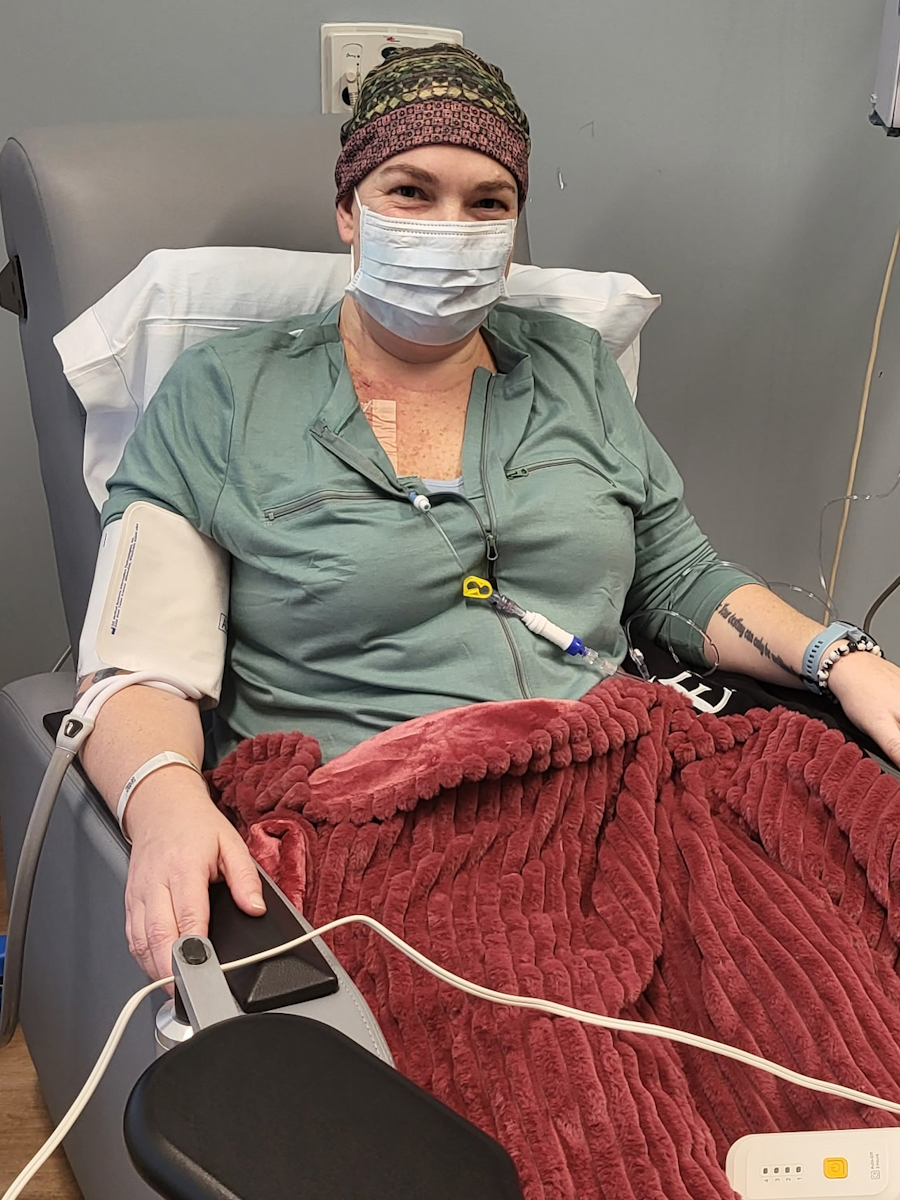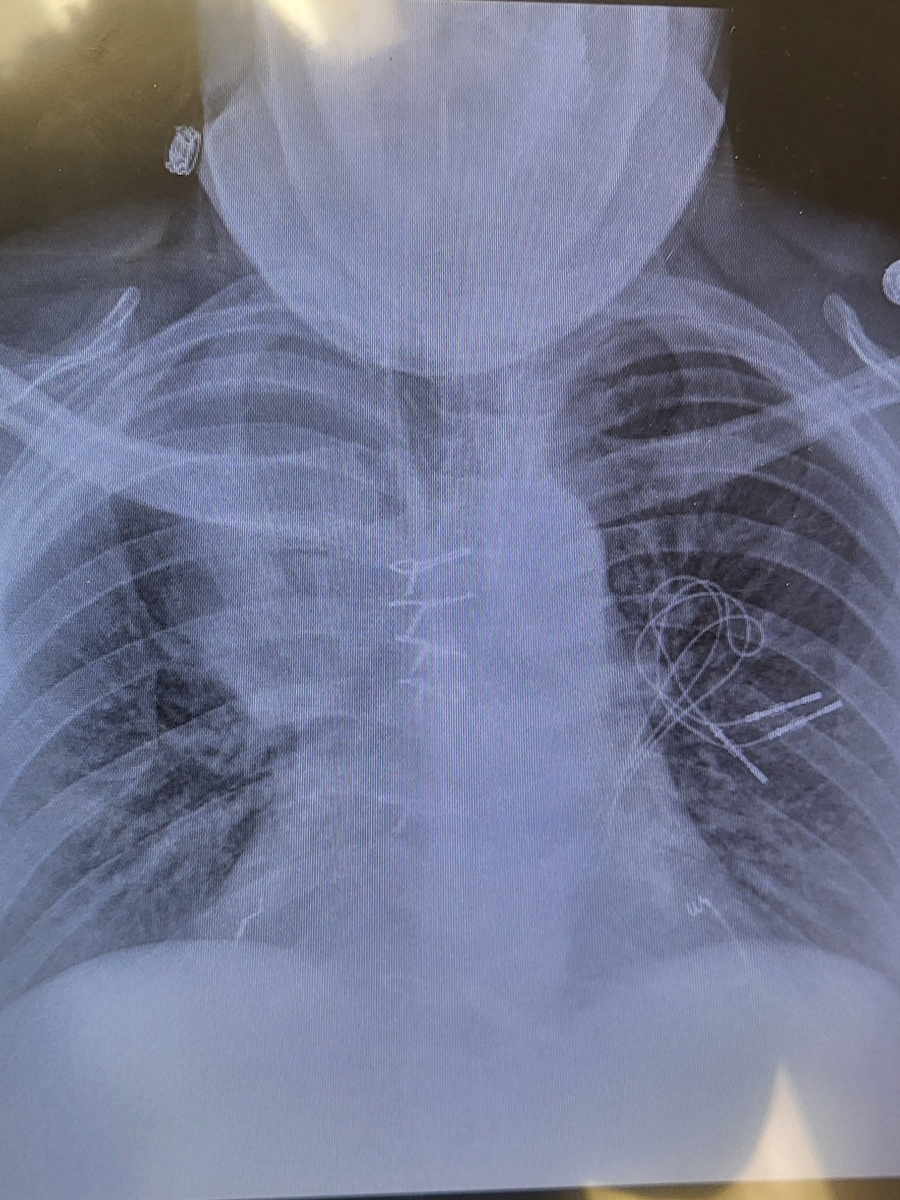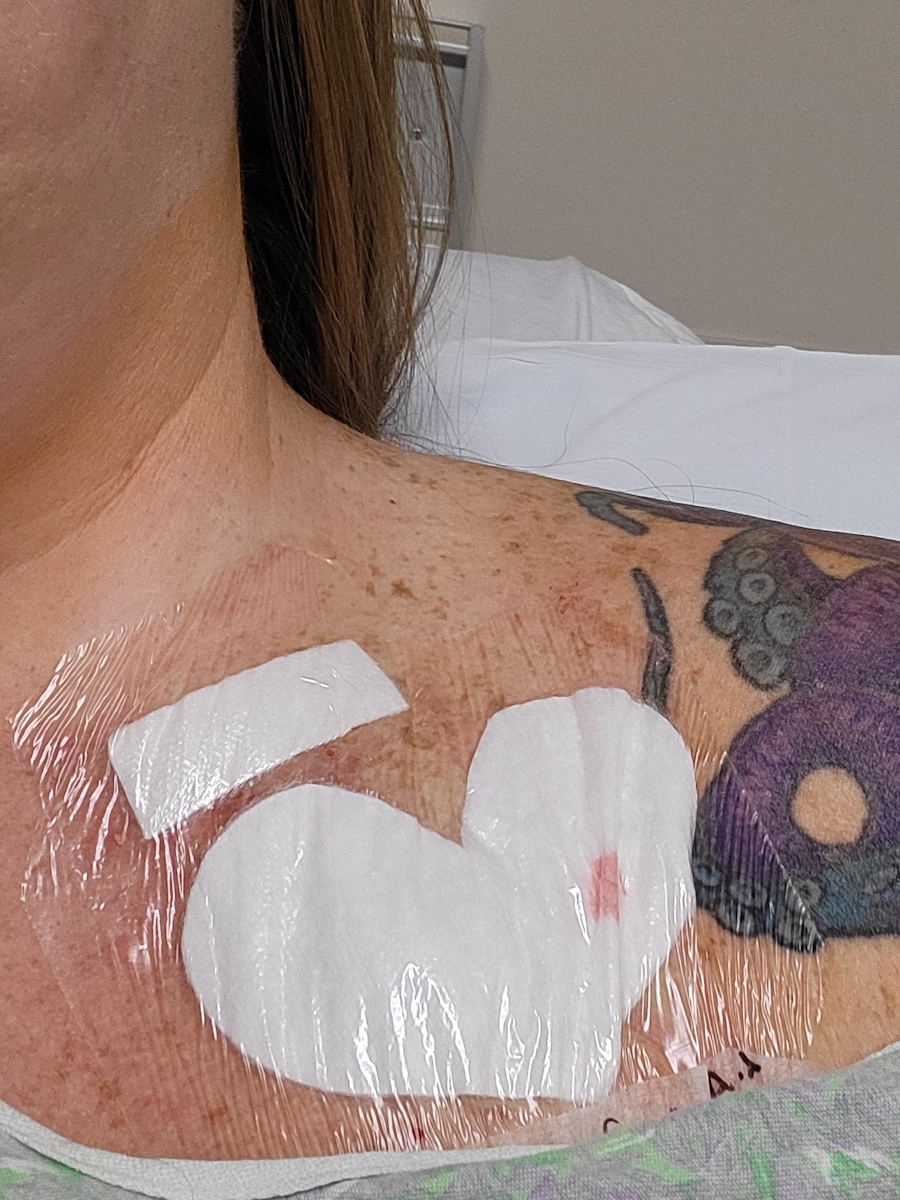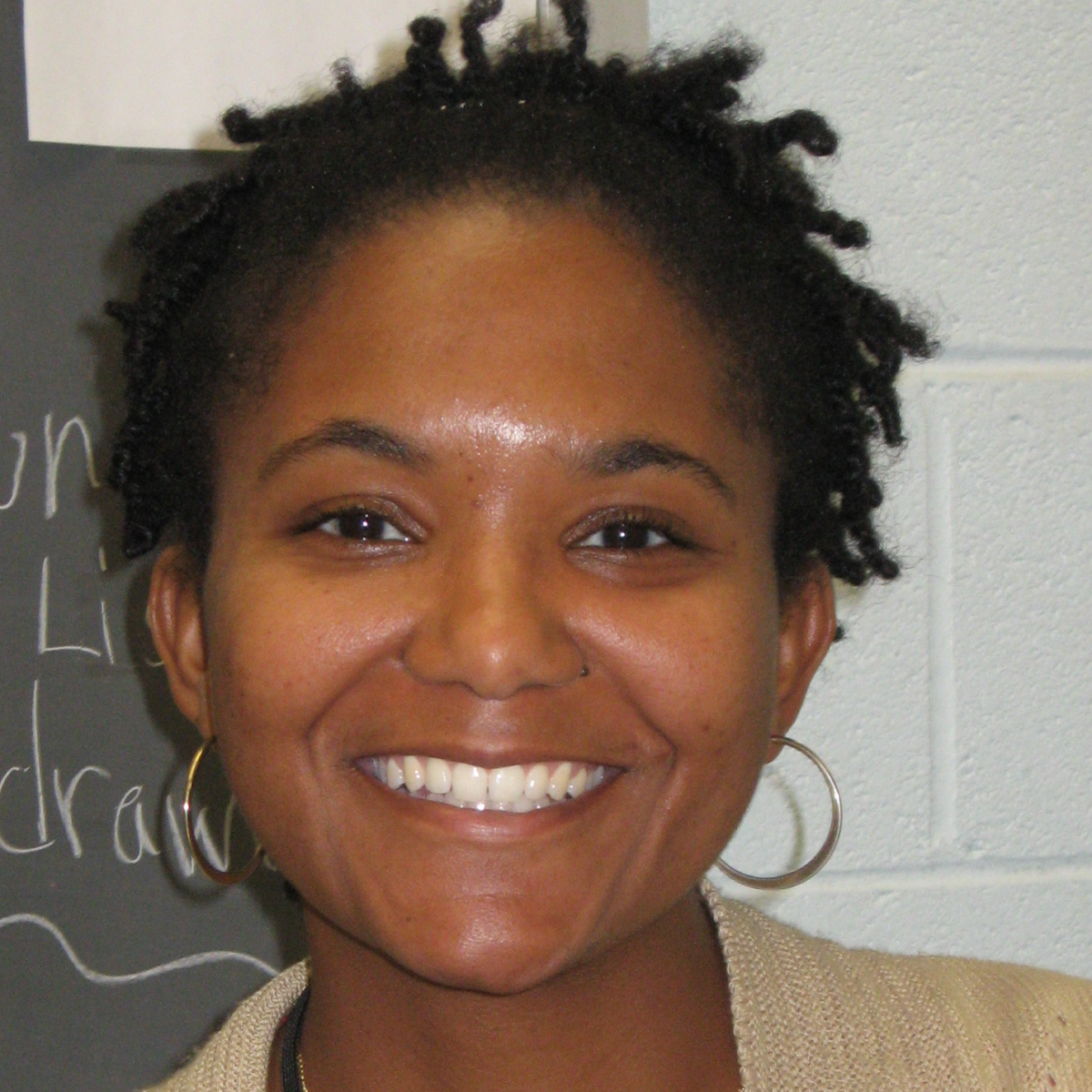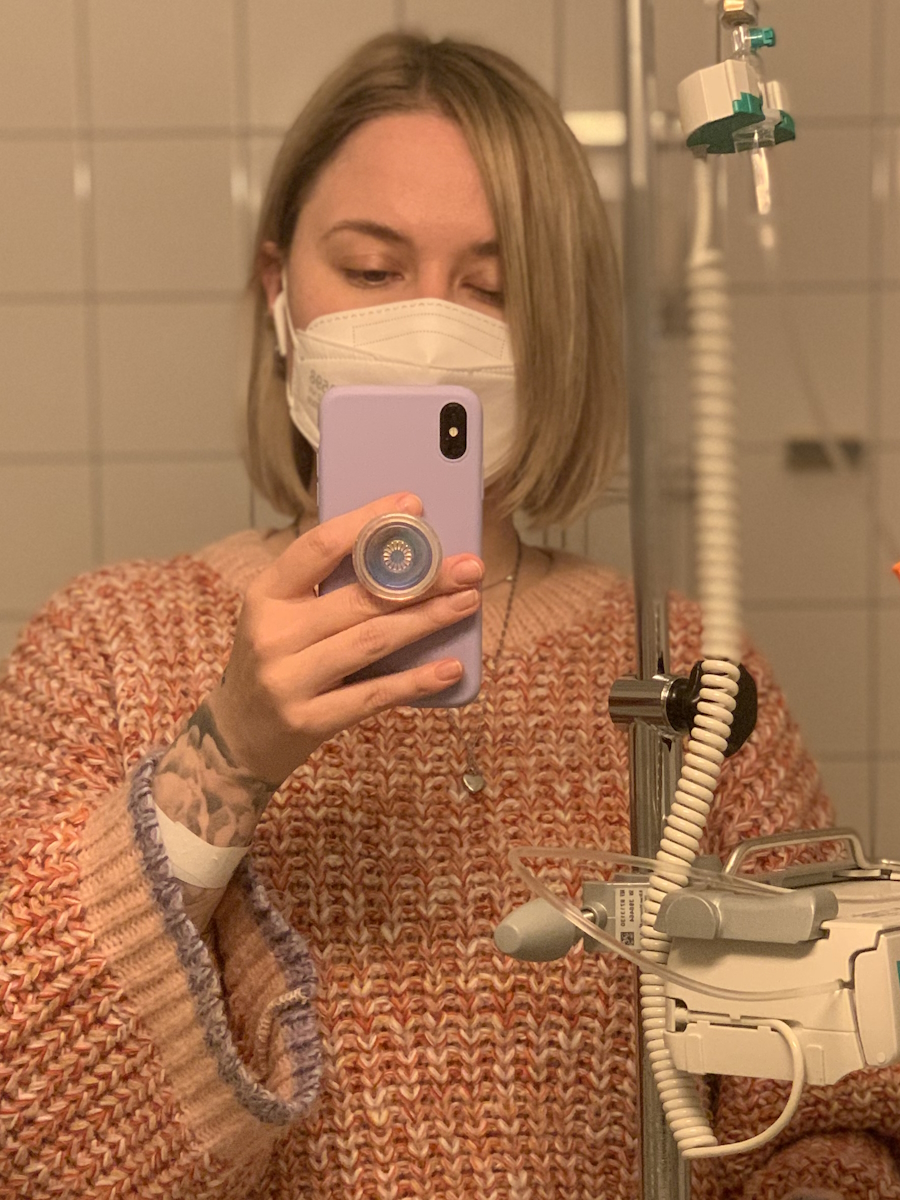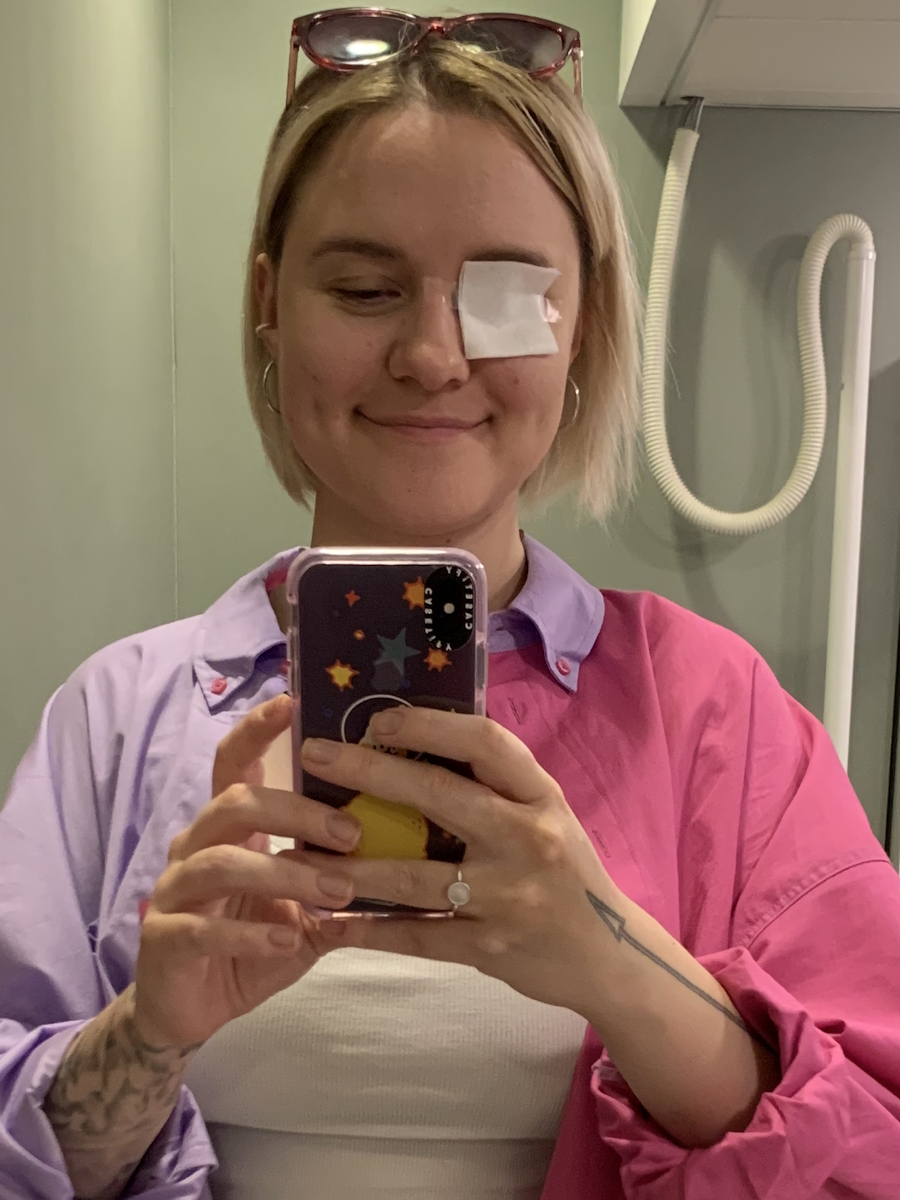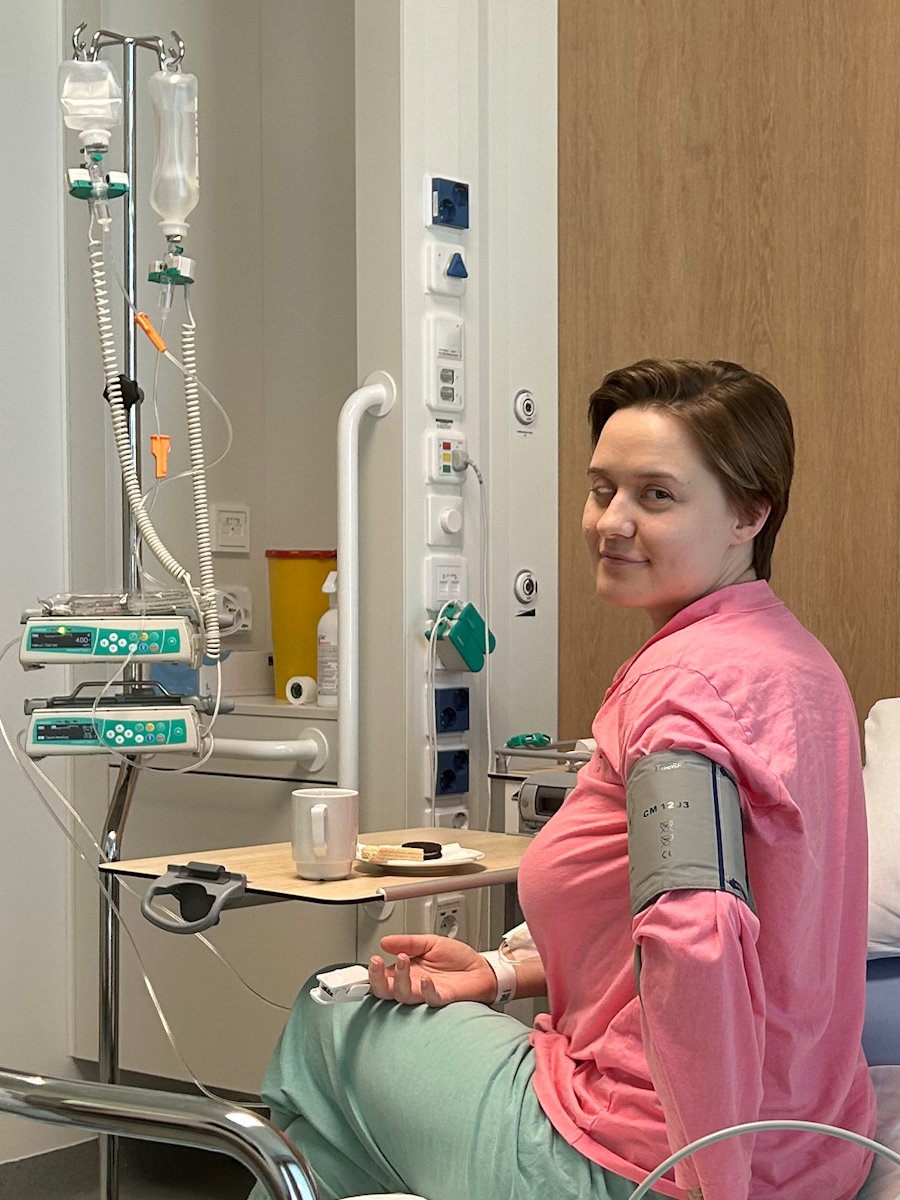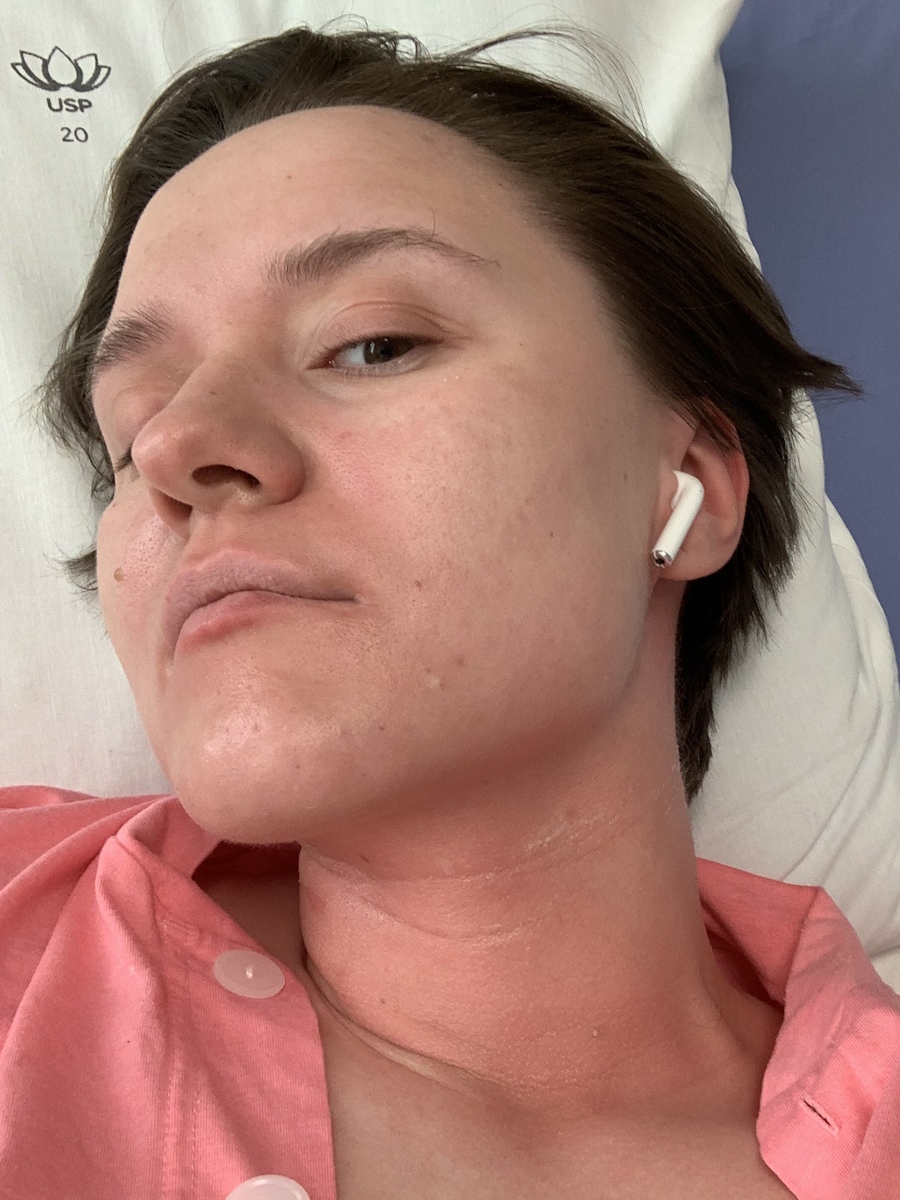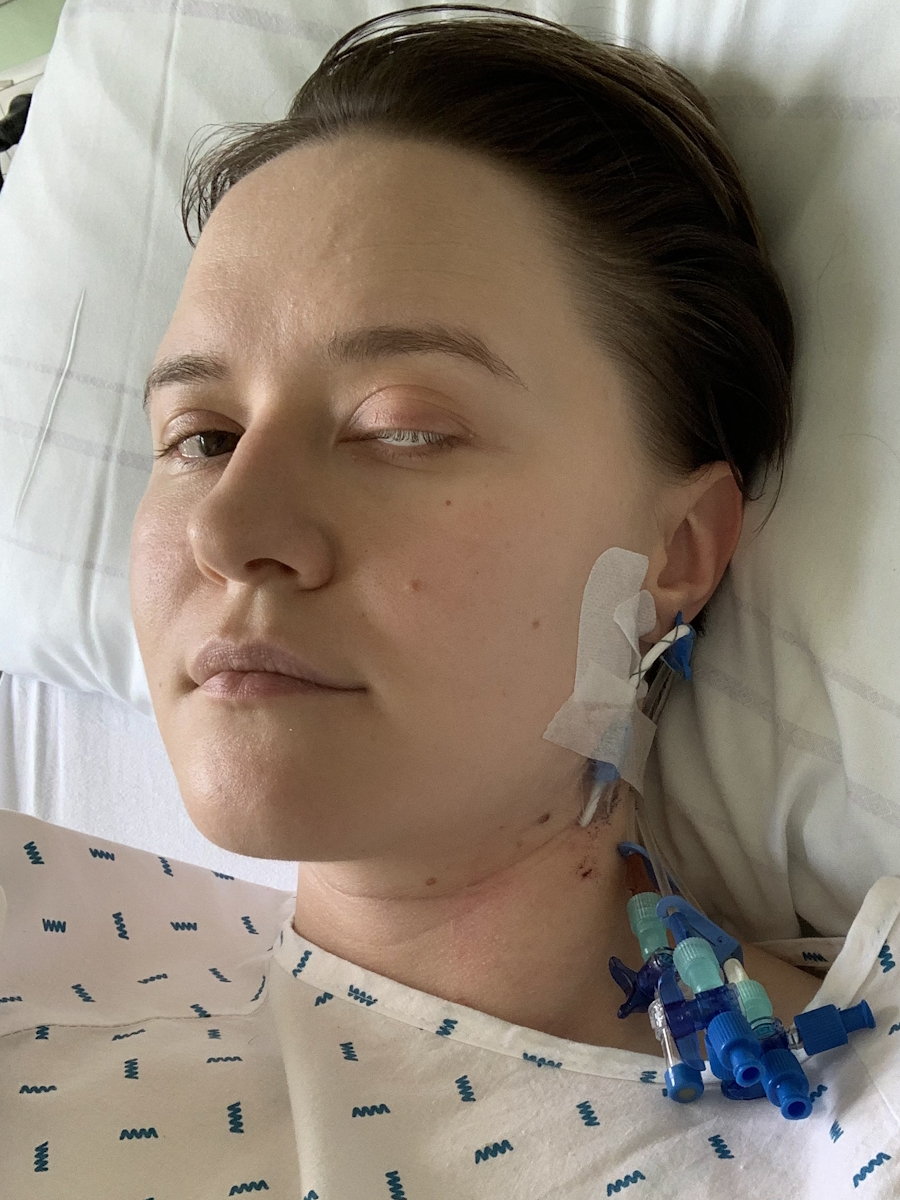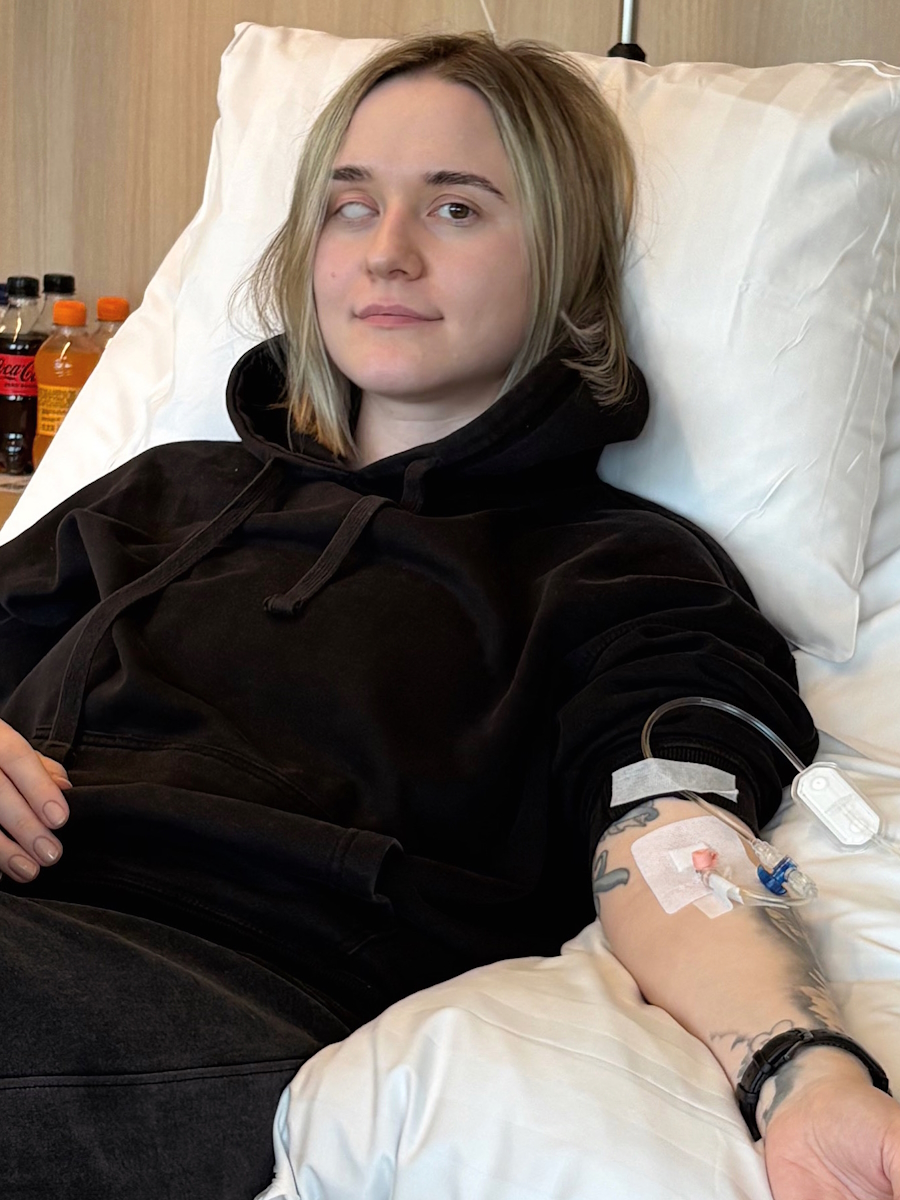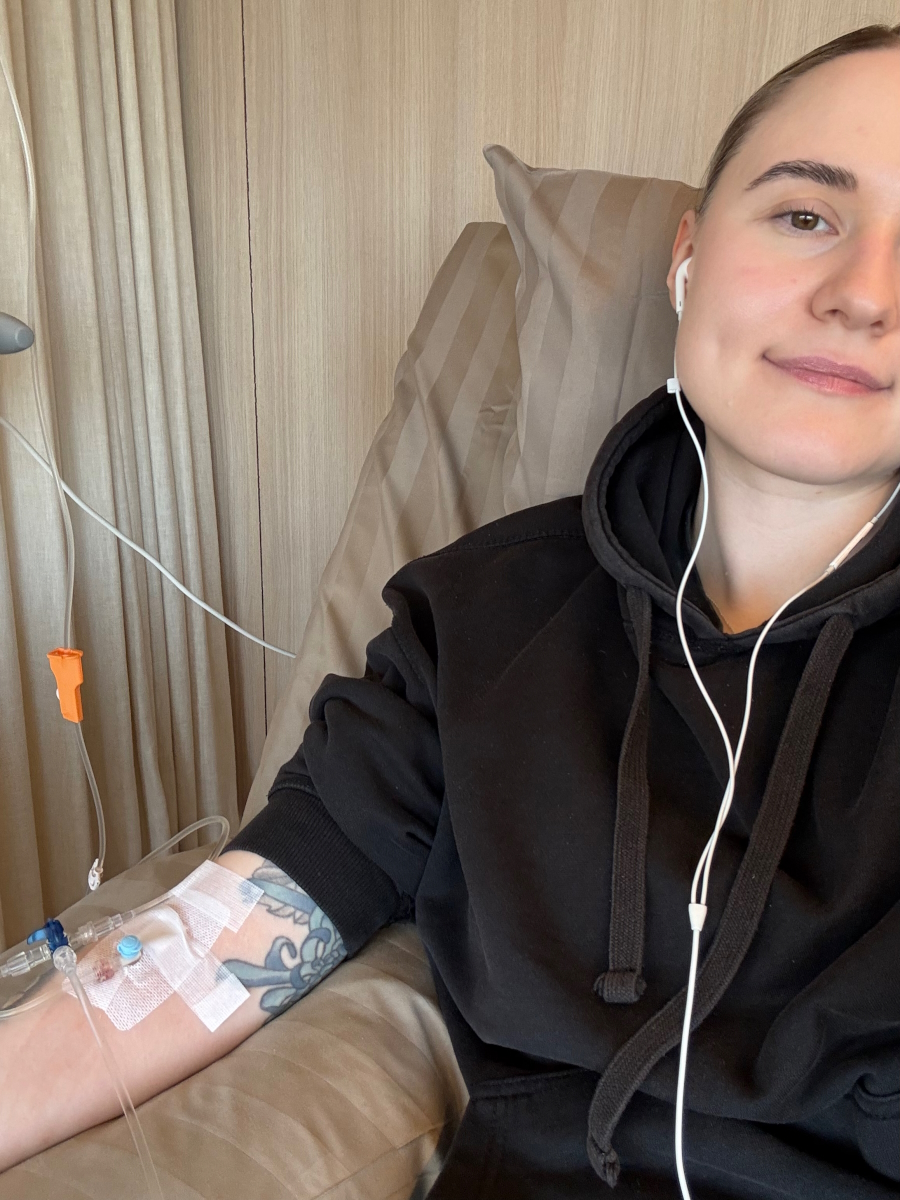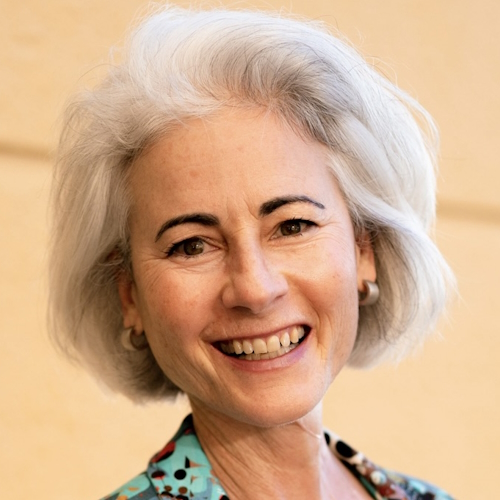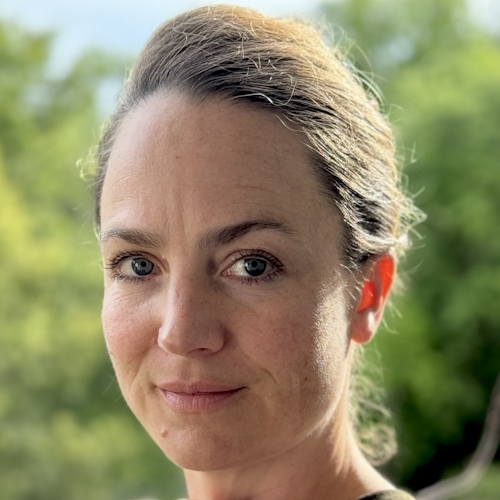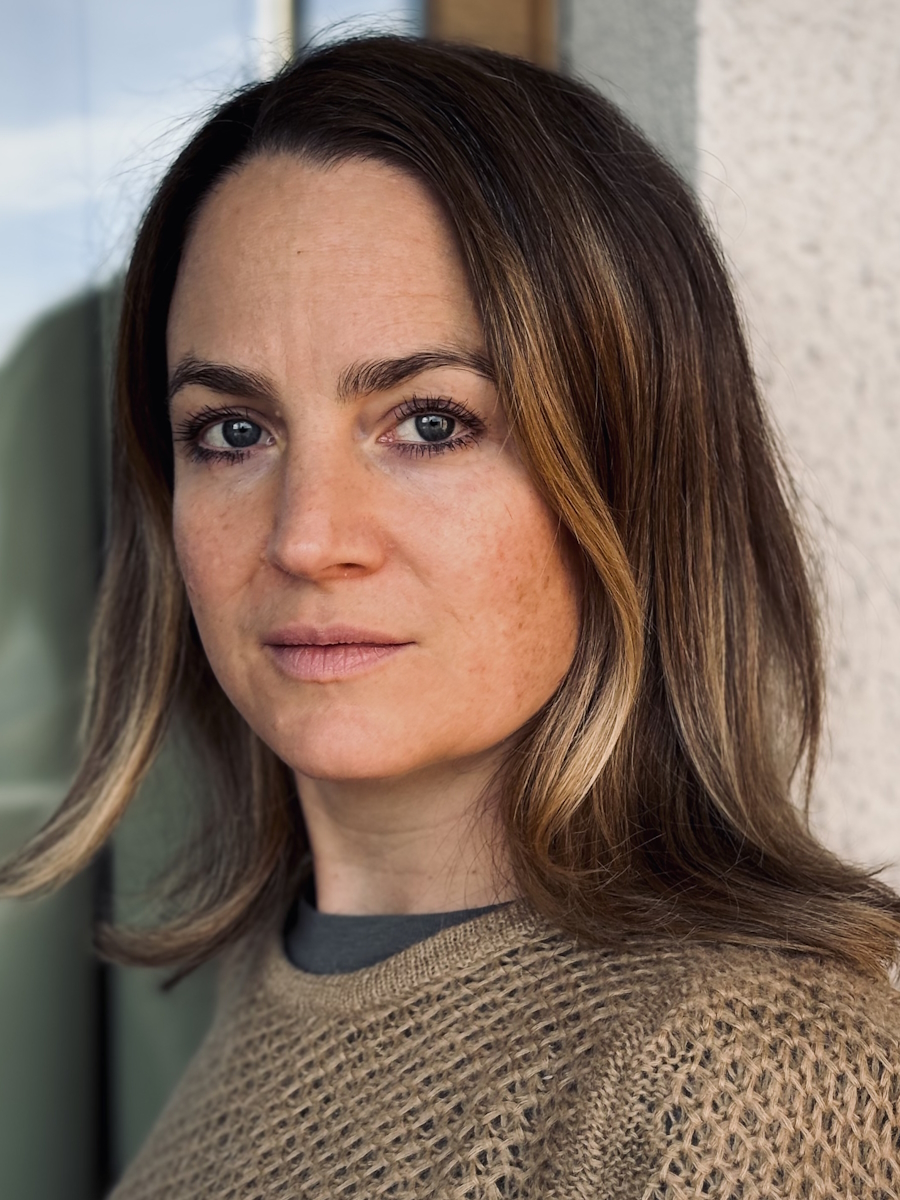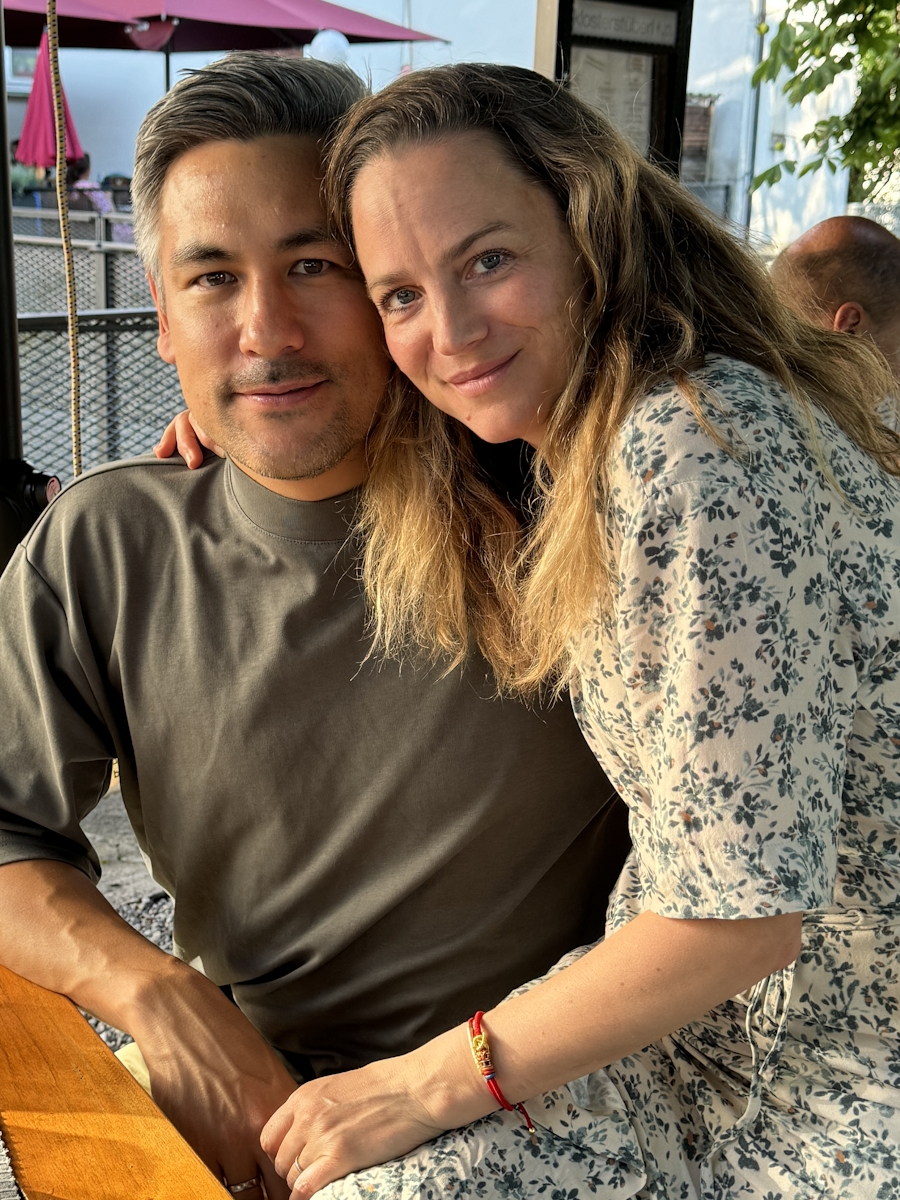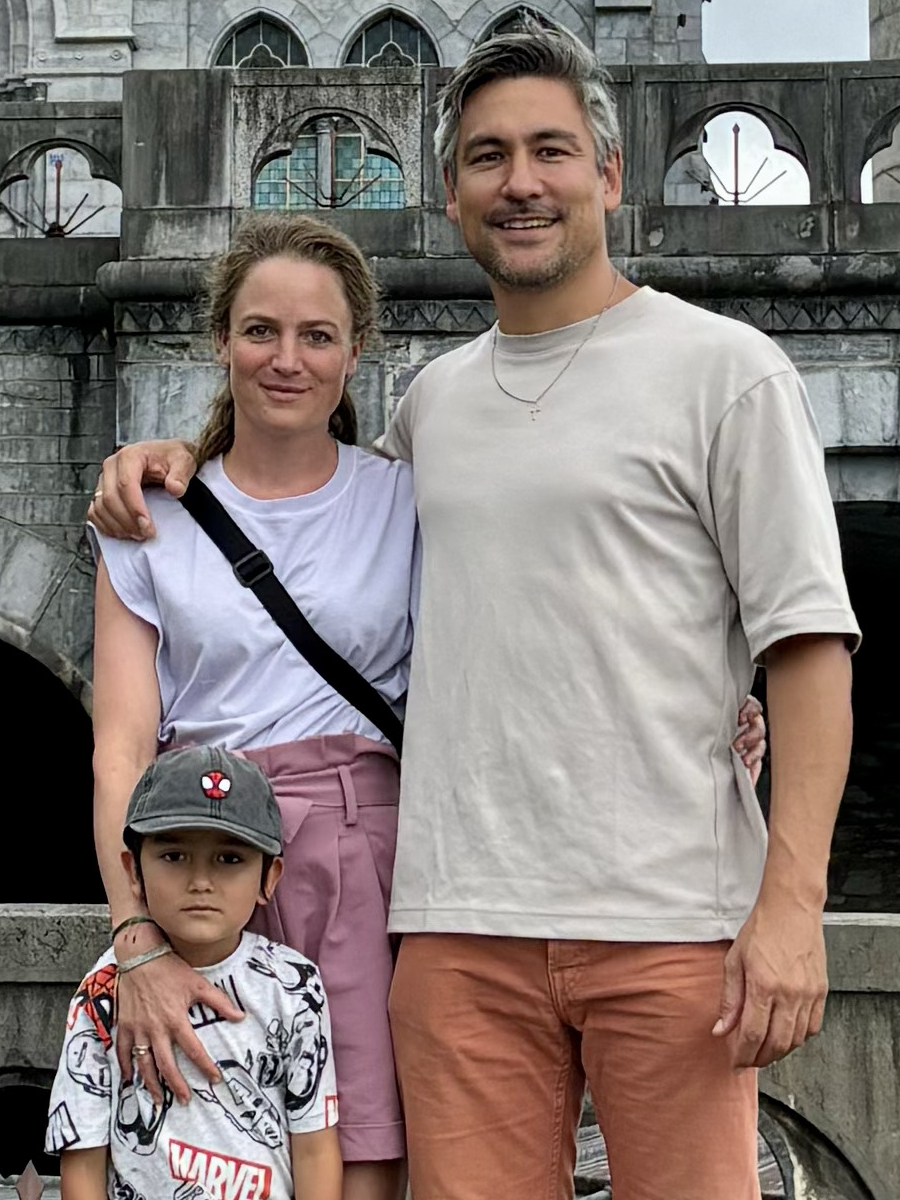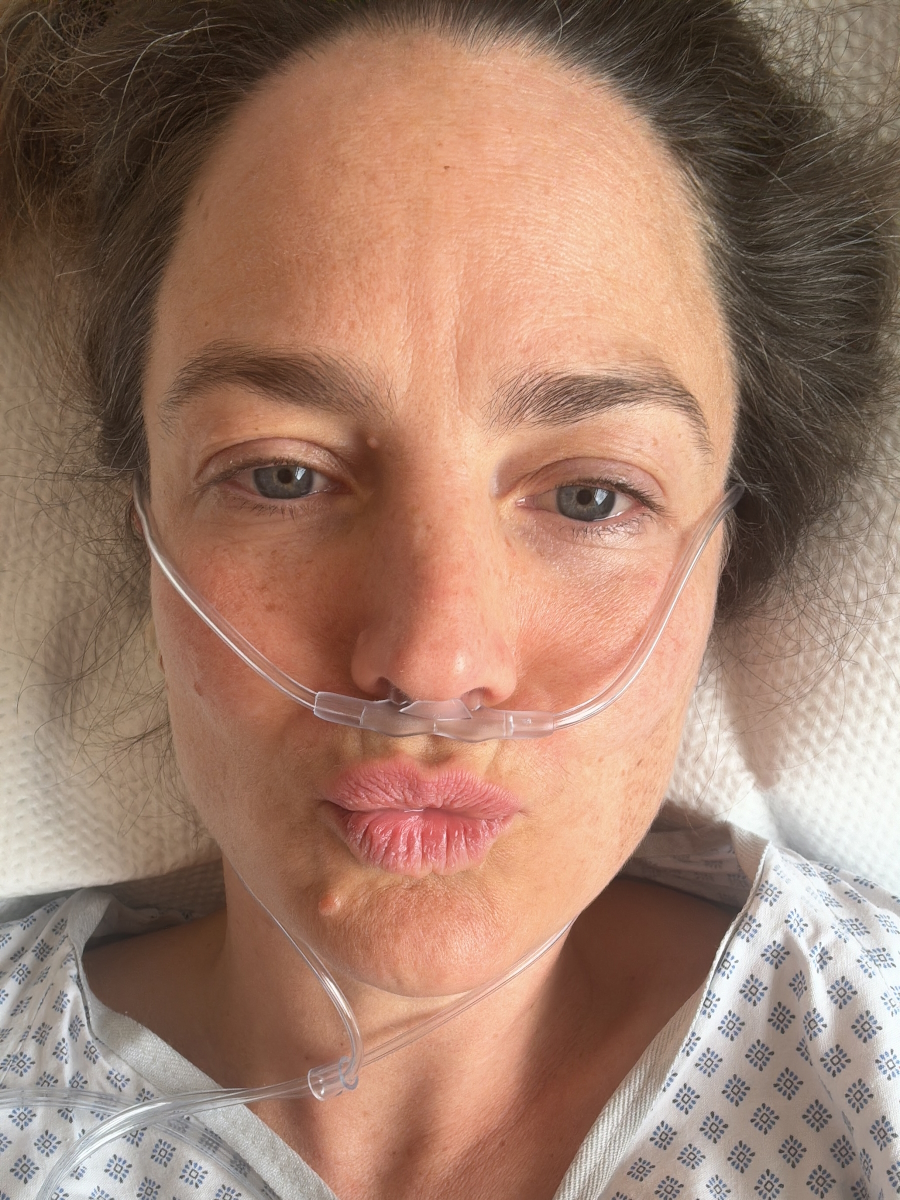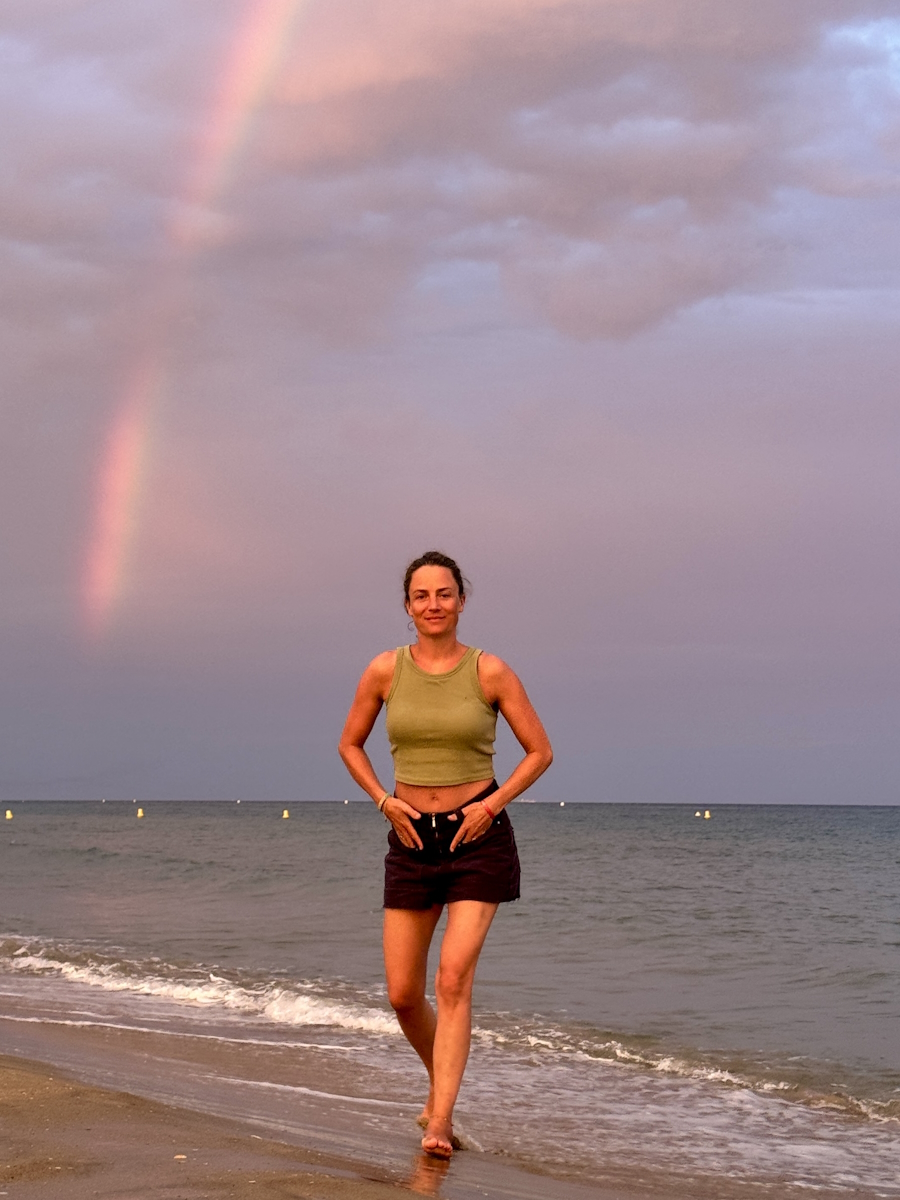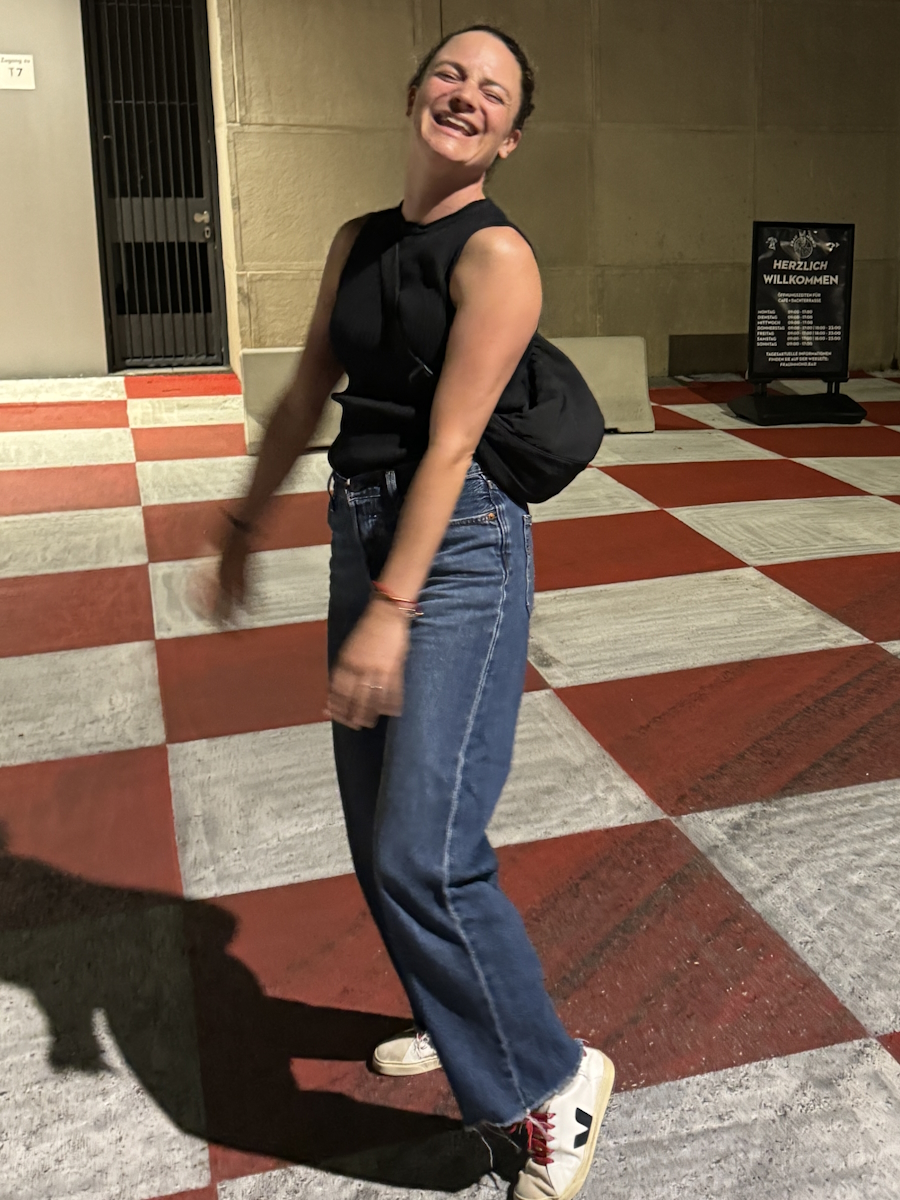How Flu-Like Symptoms Led to Megan’s Stage 4 Melanoma Diagnosis
Megan’s road to stage 4 melanoma began in 2018, when she spotted a new mole near her neck and face. A dermatologist confirmed it was melanoma, stage 1A. She had two surgeries: first to remove the mole and any lingering cancer cells, and another for reconstructive purposes. With no follow-up treatment recommended, she kept up with regular skin checks and assumed the risk of recurrence was low.
Interviewed by: Nikki Murphy
Edited by: Katrina Villareal
Years later, flu-like symptoms over the holidays turned into severe chest pain. An X-ray revealed a collapsed lung. After tests, doctors confirmed the melanoma had returned — this time as stage 4 melanoma in her lung. Megan was shocked, especially since her lymph nodes were clear. But she quickly found a supportive care team and even sought a second opinion at Moffitt Cancer Center to ensure she was on the right track.

Megan’s first treatment was immunotherapy, which didn’t stop the tumor’s rapid growth. At one point, the tumor reached 26 cm, causing extreme pain and breathing problems. Because she was BRAF positive, Megan started targeted therapy pills. One drug didn’t work well, but another produced almost instant relief and significantly shrank the tumor. This allowed for surgery in January 2024, followed by radiation for two small recurrences. (Editor’s Note: According to the Johns Hopkins Medicine website, BRAF is a gene found on chromosome seven that encodes a protein also called BRAF. A BRAF mutation is a spontaneous change in the BRAF gene that makes it work incorrectly, but not all mutations in BRAF cause cancer.)
Life with stage 4 melanoma has changed Megan’s perspective on health, priorities, and community. Side effects from long-term treatment include fatigue, occasional body aches, and digestive issues, but she’s learned to manage them. She’s also navigated deeply personal losses, like the likelihood of not having children, something never discussed with her doctors early on.
Megan now focuses on nourishing food, meaningful connections, and work that energizes her. She’s active in melanoma support groups, sharing her experience to help others feel less alone. She emphasizes the importance of early detection, advocating for skin checks, sun safety, and rejecting harmful beauty standards leading to risky procedures like tanning.
Megan’s story is one of resilience as she chooses to live fully, connect deeply, and help others navigate the complicated emotional and physical realities of survivorship. Her authenticity, advocacy, and openness make her a voice of hope for anyone touched by cancer.
Watch Megan’s video to find out more about her story:
- How a single mole changed Megan’s life forever
- The shocking way her melanoma returned years later
- Why one pill changed everything
- The part of cancer care no one told her about
- Megan’s heartfelt advice on health and self-acceptance
- Name: Megan S.
- Age at Diagnosis:
- 28
- Diagnosis:
- Melanoma
- Staging:
- Stage 1A (2018); Stage 4 (2023)
- Symptoms:
- New mole
- Cough
- Wheezing
- Chest pain
- Back pain
- Treatments:
- Surgeries: mole excision, reconstructive surgery, thoracic surgery
- Immunotherapy
- Targeted therapy: BRAF inhibitors, MEK inhibitors
- Radiation therapy
This interview has been edited for clarity and length. This is not medical advice. Please consult with your healthcare provider to make informed treatment decisions.
The views and opinions expressed in this interview do not necessarily reflect those of The Patient Story.

Inspired by Megan's story?
Share your story, too!
More Melanoma Stories
Rich B., Melanoma, Stage 3B
Symptom: Appearance of suspicious dark spots
Treatment: Immunotherapy
...
Ellis E., Melanoma, Stage 3A
Symptom: Changing mole on arm
Treatments: Lymph node resection, immunotherapy, targeted therapy (BRAF inhibitor)
...
